#first emperor of the qin dynasty
Photo


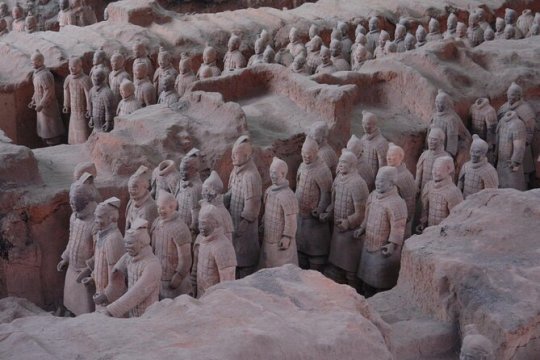




Why Archeologists Are Scared To Open The Tomb Of China's First Emperor
Booby traps and mercury poisoning are just some of the concerns around opening the tomb of Qin Shi Huang.
In 1974, farmers stumbled across one of the most important archaeological discoveries of all time in an unassuming field in the Shaanxi province of China. While digging, they found fragments of a human figure made out of clay. This was just the tip of the iceberg. Archaeological excavations revealed the field was sitting above a number of pits that were jam-packed with thousands of life-size terracotta models of soldiers and war horses, not to mention acrobats, esteemed officials, and other animals.
It appears that the mission of this Terracotta Army was to guard the nearby mausoleum of Qin Shi Huang, the formidable first emperor of the Qin dynasty who ruled from 221 to 210 BCE.
While large parts of the necropolis surrounding the mausoleum have been explored, the emperor’s tomb itself has never been opened despite the huge amount of intrigue that surrounds it. Eyes have perhaps not peered inside this tomb for over 2,000 years, when the feared emperor was sealed inside.
A prime reason behind this hesitancy is that archeologists are concerned about how the excavation might damage the tomb, losing vital historical information. Currently, only invasive archaeological techniques could be used to enter the tomb, running a high risk of causing irreparable damage.
One of the clearest examples of this comes from the excavations of the city of Troy in the 1870s by Heinrich Schliemann. In his hastiness and naivety, his work managed to destroy almost all traces of the very city he’d set out to uncover. Archaeologists are certain they don't want to be impatient and make these same mistakes again.
Scientists have floated the idea of using certain non-invasive techniques to look inside the tomb. One idea is to utilize muons, the subatomic product of cosmic rays colliding with atoms in the Earth's atmosphere, that can peer through structures like an advanced X-ray. However, it looks like most of these proposals have been slow to get off the ground.
Cracking open the tomb could come with much more immediate and deadly dangers too. In an account written by ancient Chinese historian Sima Qian around 100 years after Qin Shi Huang’s death, he explains that the tomb is hooked up to booby traps that were designed to kill any intruder.
“Palaces and scenic towers for a hundred officials were constructed, and the tomb was filled with rare artifacts and wonderful treasure. Craftsmen were ordered to make crossbows and arrows primed to shoot at anyone who enters the tomb. Mercury was used to simulate the hundred rivers, the Yangtze and Yellow River, and the great sea, and set to flow mechanically,” it reads.
Even if the 2,000-year-old bow weapons fail, this account suggests a flood of toxic liquid mercury could wash across the grave diggers. That might sound like an empty threat, but scientific studies have looked at mercury concentrations around the tomb and found significantly higher levels than they’d expect in a typical piece of land.
“Highly volatile mercury may be escaping through cracks, which developed in the structure over time, and our investigation supports ancient chronicle records on the tomb, which is believed never to have been opened/looted,” authors of one 2020 paper conclude.
For the time being, the tomb of Qin Shi Huang remains sealed and unseen, but not forgotten. When the time is right, however, it’s possible that scientific advancements could finally delve into the secrets that have been lying here undisturbed for some 2,200 years.
By Tom Hale
#Why Archeologists Are Scared To Open The Tomb Of China's First Emperor#Qin Shi Huang#first emperor of the qin dynasty#royal tomb#royal grave#mausoleum#terracotta army#treasure#ancient artifacts#archeology#archeolgst#history#history news#ancient history#ancient culture#ancient civilizations#ancient china#chinese history#long reads
143 notes
·
View notes
Text

This is one of the only terracotta warriors that was found almost completely intact.
Note the detail on the bottom of his shoe, showing that grip and traction were considered in footwear even 2,200 years ago.
Each life-sized clay warrior was crafted to be completely unique and there are no two terracotta warriors-among the 8,000 total—that are exactly the same.
Shortly after the completion of the tomb in 210-209 BC, it was looted for weapons and burned, causing the roof to collapse, crushing the terracotta warriors.
All the other terracotta warriors that are currently on display were painstakingly restored.
What's even more remarkable is that the terracotta warriors were originally painted in bright colors by skilled artisans.
Unfortunately, when they were exposed to air and sunlight during the excavation in the 1970s, the colors began to curl up almost immediately and disappeared within minutes.
These terracotta warriors were put in place to guard the tomb of the first emperor of unified China — Qin Shi Huang (18 February 259 BC – 12 July 210 BC).
To this day, the tomb has yet to be opened.
According to ancient historians, the tomb contains an entire kingdom and palace in which the ceilings are decorated with pearls to mimic the night sky.
The tomb is also said to contain extremely rare artifacts and has been rigged with crossbows to shoot anyone trying to break in.
To keep its location a secret, the workers were entombed with the emperor.
As described by Han dynasty historian Sima Qian (145-90 BCE) in the Records of the Grand Historian, he mentioned that inside the tomb, "mercury was used to fashion the hundred rivers, the Yellow River and the Yangtze River, and the seas in such a way that they flowed."
Modern tests have indicated extremely high levels of mercury in the surrounding soil.
#Qin Shi Huang#terracotta warriors#Qin Dynasty#China’s First Emperor#clay warrior#Terracotta Army#Mausoleum of the First Qin Emperor#funerary art#Ancient Chinese Warfare#military power#terracotta sculptures#Shaanxi#China
121 notes
·
View notes
Photo


Ying Zheng for Qin’s Moon
4 notes
·
View notes
Text
[Hanfu · 漢服]Chinese Western Han (202 BC – 9 AD) Traditional Clothing Hanfu Photoshoot
“这个位子 我有何坐不得?”
“我欲问鼎天下,试问谁与争锋”
"Why can't I sit in this seat?"
"I want to conquer the world, who can compete with me?"
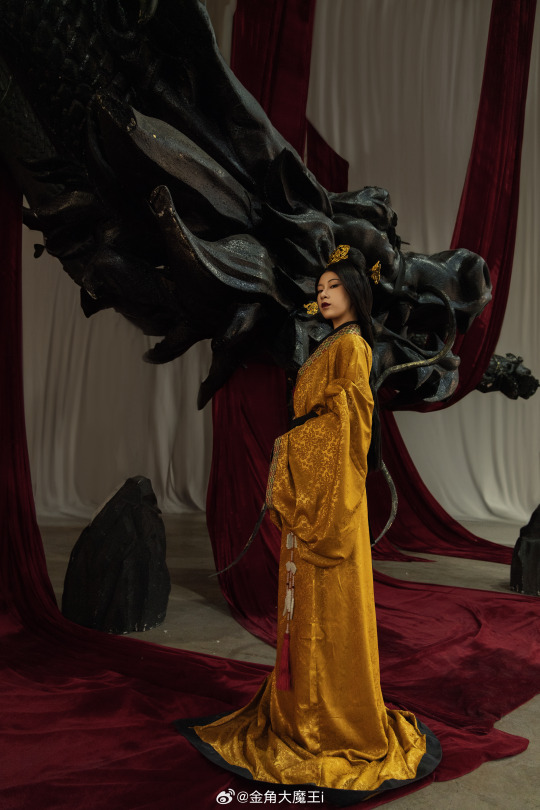
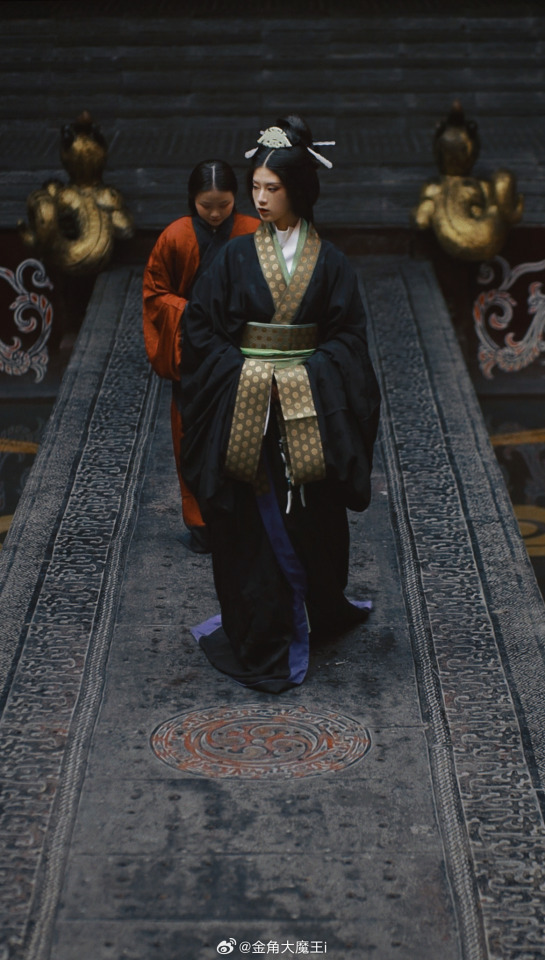
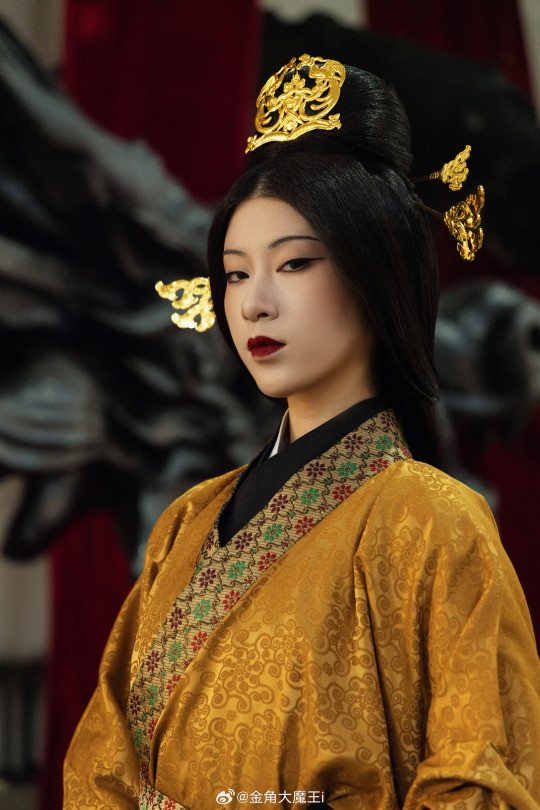
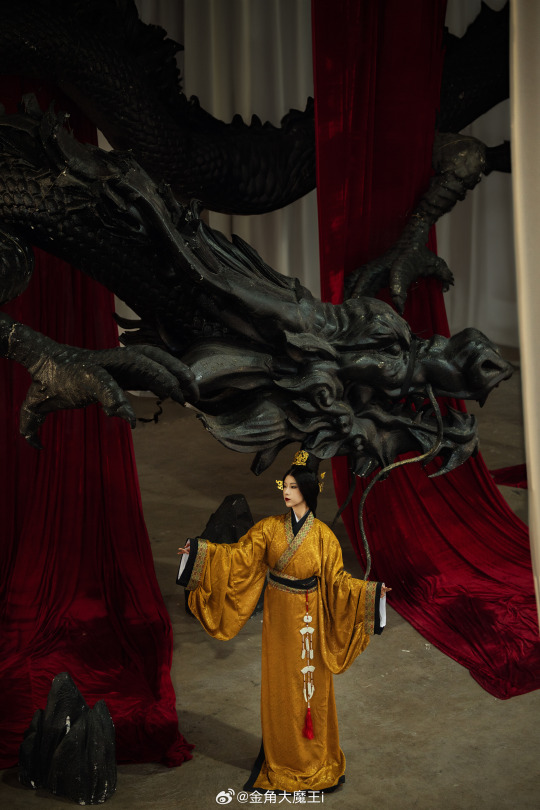

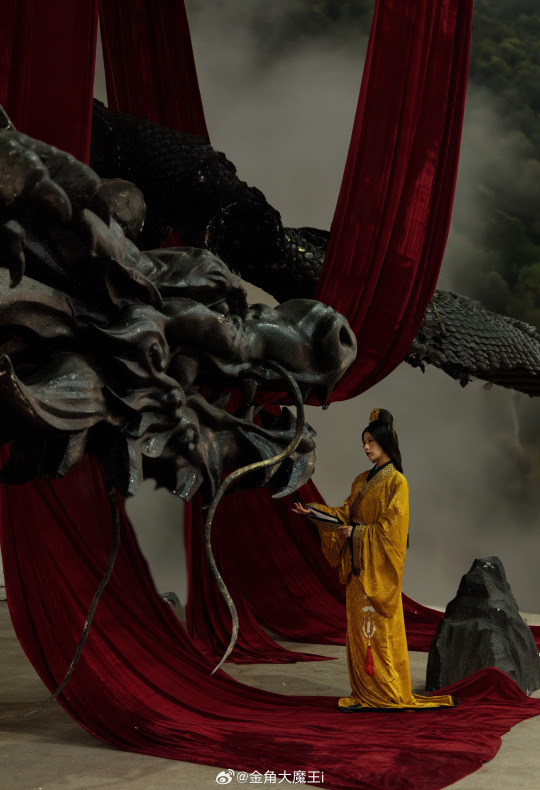


【About The First Empress of the Han Dynasty Empress Lü:Lǚ zhì(吕雉)】
Lü Zhi (241–18 August 180 BC), courtesy name E'xu (娥姁) and commonly known as Empress Lü (traditional Chinese: 呂后; simplified Chinese: 吕后; pinyin: Lǚ Hòu) and formally Empress Gao of Han (漢高后; 汉高后; Hàn Gāo Hòu), was the empress consort of Gaozu, the founding emperor of the Han dynasty. They had two known children, Liu Ying (later Emperor Hui of Han) and Princess Yuan of Lu. Lü was the first woman to assume the title Empress of China and paramount power. After Gaozu's death, she was honoured as empress dowager and regent during the short reigns of Emperor Hui and his successors Emperor Qianshao of Han and Liu Hong (Emperor Houshao).
She played a role in the rise and foundation of her husband, Emperor Gaozu, and his dynasty, and in some of the laws and customs laid down by him. Empress Lü, even in the absence of her husband from the capital, killed two prominent generals who played an important role in Gaozu's rise to power, namely Han Xin and Peng Yue, as a lesson for the aristocracy and other generals. In June 195 BC, with the death of Gaozu, Empress Lü became, as the widow of the late emperor and mother of the new emperor, Empress Dowager (皇太后, Huángtàihòu), and assumed a leadership role in her son's administration. Less than a year after Emperor Hui's accession to the throne, in 194 BC, Lü had one of the late Emperor Gaozu's consorts whom she deeply hated, Concubine Qi, put to death in a cruel manner. She also had Concubine Qi's son Liu Ruyi poisoned to death. Emperor Hui was shocked by his mother's cruelty and fell sick for a year, and thereafter no longer became involved in state affairs, and gave more power to his mother. As a result, Empress dowager Lü held the court, listened to the government, spoke on behalf of the emperor, and did everything (臨朝聽政制, "linchao ting zhengzhi"). With the untimely death of her 22-year-old son, Emperor Hui, Empress dowager Lü subsequently proclaimed his two young sons emperor (known historically as Emperor Qianshao and Emperor Houshao respectively). She gained more power than ever before, and these two young emperors had no legitimacy as emperors in history; the history of this 8-year period is considered and recognized as the reign of Empress Dowager Lü. She dominated the political scene for 15 years until her death in August 180 BC, and is often depicted as the first woman to have ruled China. While four women are noted as having been politically active before her—Fu Hao, Yi Jiang, Lady Nanzi, and Queen Dowager Xuan—Lü was the perhaps first woman to have ruled over united China.
Lü Zhi was born in Shanfu County (單父; present-day Shan County, Shandong) during the late Qin Dynasty. Her courtesy name was Exu (Chinese: 娥姁; pinyin: Éxǔ). To flee from enemies, her father Lü Wen (呂文) brought their family to Pei County, settled there, and became a close friend of the county magistrate. Many influential men in town came to visit Lü Wen. Xiao He, then an assistant of the magistrate, was in charge of the seating arrangement and collection of gifts from guests at a banquet in Lü Wen's house, and he announced, "Those who do not offer more than 1,000 coins in gifts shall be seated outside the hall." Liu Bang (later Emperor Gaozu of Han), then a minor patrol officer (亭長), went there bringing a single cent and said, "I offer 10,000 coins." Lü Wen saw Liu Bang and was so impressed with him on first sight, that he immediately stood up and welcomed Liu into the hall to sit beside him. Xiao He told Lü Wen that Liu Bang was not serious, but Liu ignored him and chatted with Lü. Lü Wen said, "I used to predict fortunes for many people but I've never seen someone so exceptional like you before." Lü Wen then offered his daughter Lü Zhi's hand in marriage to Liu Bang and they were wed. Lü Zhi bore Liu Bang a daughter (later Princess Yuan of Lu) and a son, Liu Ying (later Emperor Hui of Han).
Liu Bang later participated in the rebellion against the Qin Dynasty under the insurgent Chu kingdom, nominally-ruled by King Huai II. Lü Zhi and her two children remained with her father and family for most of the time during this period.
Even after Emperor Gaozu (Liu Bang)'s victory over Xiang Yu, there were still unstable areas in the empire, requiring the new government to launch military campaigns to pacify these regions thereafter. Gaozu placed Empress Lü Zhi and the crown prince Liu Ying (Lü Zhi's son) in charge of the capital Chang'an and making key decisions in court, assisted by the chancellor Xiao He and other ministers. During this time, Lü Zhi proved herself to be a competent administrator in domestic affairs, and she quickly established strong working relationships with many of Gaozu's officials, who admired her for her capability and feared her for her ruthlessness. After the war ended and Emperor Gaozu returned, she remained in power and she was always influential in many of the country's affairs.
In his late years, Emperor Gaozu started favouring one of his younger consorts, Concubine Qi(戚夫人), who bore him a son, Liu Ruyi, who was instated as Prince of Zhao in 198 BC, displacing Lü Zhi's son-in-law Zhang Ao (Princess Yuan of Lu's husband). Gaozu had the intention of replacing Liu Ying with Liu Ruyi as crown prince, reasoning that the former was too "soft-hearted and weak" and that the latter resembled him more. Since Lü Zhi had strong rapport with many ministers, they generally opposed Gaozu's decision but the emperor seemed bent on deposing Liu Ying. Lü Zhi became worried and she approached Zhang Liang for help, and the latter analysed that Gaozu was changing the succession on grounds of favouritism. Zhang Liang invited the "Four Whiteheads of Mount Shang", a group of four reclusive wise men, to persuade Gaozu to change his decision. The four men promised to assist Liu Ying in future if he became emperor, and Gaozu was pleased to see that Liu Ying had their support. Gaozu told Concubine Qi, "I wanted to replace (the crown prince). Now I see that he has the support of those four men; he is fully fledged and difficult to unseat. Empress Lü is really in charge!" This marked the end of the dispute over the succession and affirmed Liu Ying's role as crown prince.
In June 195 BC, Emperor Gaozu died and was succeeded by Liu Ying, who became historically known as Emperor Hui of Han. Lü Zhi was honoured by Emperor Hui as empress dowager. She exerted more influence during the reign of her son than she had when she was empress, and she became the powerful and effective lead figure in his administration.
Lü Zhi did not harm most of Gaozu's other consorts and treated them according to the rules and customs of the imperial family. For example, consorts who bore male children that were instated as princes were granted the title of "Princess Dowager" (王太妃) in their respective sons' principalities. One exception was Concubine Qi, whom Lü Zhi greatly resented because of the dispute over the succession between Liu Ruyi (Qi's son) and Liu Ying. Liu Ruyi, the Prince of Zhao, was away in his principality, so Lü Zhi targeted Concubine Qi. She had Qi stripped of her position, treated like a convict (head shaved, in stocks, dressed in prison garb), and forced to do hard labour in the form of milling rice.
Roles in the deaths of Concubine Qi and Liu Ruyi
Lü Zhi then summoned Liu Ruyi, who was around the age of 12 then, to Chang'an, intending to kill him together with his mother. However Zhou Chang (周昌), the chancellor in Liu Ruyi's principality, whom Lü Zhi respected because of his stern opposition to Emperor Gaozu's proposal to make Liu Ruyi crown prince, temporarily protected Liu Ruyi from harm by responding to Lü Zhi's order that, "The Prince of Zhao is ill and unfit for travelling over long distances." Lü Zhi then ordered Zhou Chang to come to the capital, had him detained, and then summoned Liu Ruyi again. Emperor Hui tried to save Liu Ruyi by intercepting his half-brother before the latter entered Chang'an, and kept Liu Ruyi by his side most of the time. Lü Zhi refrained from carrying out her plans for several months because she feared that she might harm Emperor Hui as well.
One morning in the winter of 195-194 BC, Emperor Hui went for a hunting trip and did not bring Liu Ruyi with him because the latter refused to get out of bed. Lü Zhi's chance arrived, so she sent an assassin to force poisoned wine down Liu Ruyi's throat. The young prince was dead by the time Emperor Hui returned. Lü Zhi then had Concubine Qi killed in an inhumane manner: she had Qi's limbs chopped off, eyes gouged out, ears sliced off, nose sliced off, tongue cut out, forced her to drink a potion that made her mute, and had her thrown into a latrine. She called Qi a "human swine" (人彘). Several days later, Emperor Hui was taken to view the "human swine" and was shocked to learn that it was Concubine Qi. He cried loudly and became ill for a long time. He requested to see his mother and said, "This is something done not by a human. As the empress dowager's son, I'll never be able to rule the empire" From then on, Emperor Hui indulged himself in carnal pleasures and ignored state affairs, leaving all of them to his mother, and this caused power to fall completely into her hands.
When Lu first came to the court, she planned to establish the Lu family members as "kings (nobles)". This was not only to commemorate her deceased relatives, but also to strengthen her power in the court. However, Wang Ling, the prime minister at the time, immediately pointed out that the great ancestor Liu Bang(Husband of Lu, founding emperor of Han Dynasty)once killed the white horse and agreed that "if someone who are not Liu family be come the king, the whole world should attack them." Therefore, the move of establishing a foreign surname as the king violated the ancestral system established by Liu Bang and was really inappropriate.
Faced with the obstruction of Wang Ling, Empress Lu responded by deposing him and insisting on honoring her deceased father and two brothers as King Lu Xuan, King Wu Wu, and King Zhao Zhao. After setting this precedent, Lu was out of control. She not only named her three nephews Lu Tai, Lu Chan, and Lu Lu as King Lu, King Liang, and King Zhao respectively, but also named her grandnephew Lu Tong. He was the King of Yan, and his grandson Zhang Yan was granted the title of King of Lu.
In addition, there are also quite a few people with the surname Lu who have been granted the title of marquis. As a result, it can be said that many princes surnamed Lu appeared in the court in the blink of an eye. They controlled the government and became the cornerstone and support for Empress Lu to control the right to speak in the court.
Empress Lu's life was emblematic of the intricate power dynamics of the Han Dynasty in ancient China. Born into a modest family, Lu rose to prominence through her marriage to Emperor Gaozu. Her astute political acumen and strategic alliances allowed her to wield significant influence behind the throne. As the mother of several emperors, she orchestrated their ascensions and manipulated court politics to consolidate power for her family. However, her ruthless pursuit of control and elimination of rivals earned her both admirers and enemies. In the end, her ambitions led to her downfall, as her unchecked power and manipulation of succession angered the nobility.As a result, after her death, the Lu family was retaliated and killed by the nobles and courtiers who supported the Han Dynasty, and the family was almost exterminated.Empress Lu's life illustrates the delicate balance of power, ambition, and intrigue in ancient Chinese imperial courts.
Literati in every dynasty in China often likened women who attempted to participate in government affairs and influence national policies to Empress Lü, saying they were vicious. One of them was Wu Zetian, the first official female emperor of China. However, compared with Empress Lü, Wu Zetian was more talented. Unlike Empress Lü, who was simply vicious, she ignored the system and stability of the empire and put personal and family interests first.
________________
📸Photo & Model :@金角大魔王i
🔗Weibo:https://weibo.com/1763668330/NFVOXthxX
________________
#chinese hanfu#Western Han (202 BC – 9 AD)#hanfu#Empress Lü#Lǚ zhì(吕雉)#china history#chinese history#hanfu accessories#hanfu_challenge#chinese traditional clothing#china#chinese#woman in history#漢服#汉服#中華風#金角大魔王i#historical fashion
182 notes
·
View notes
Text


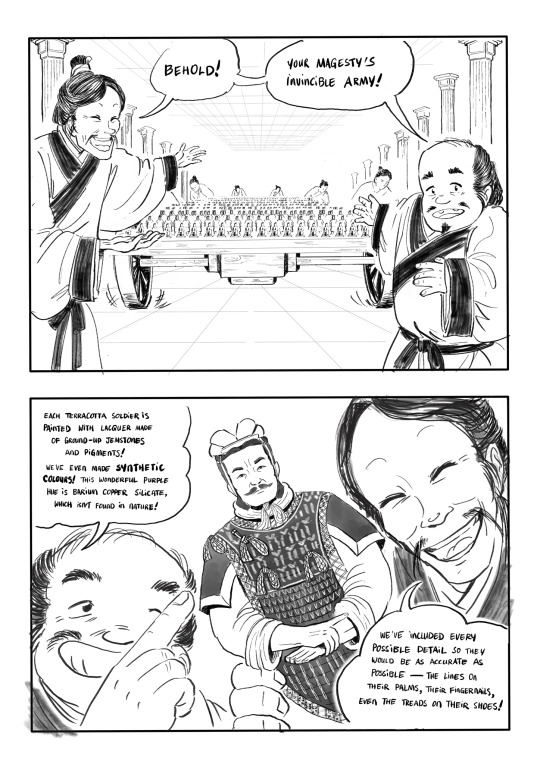
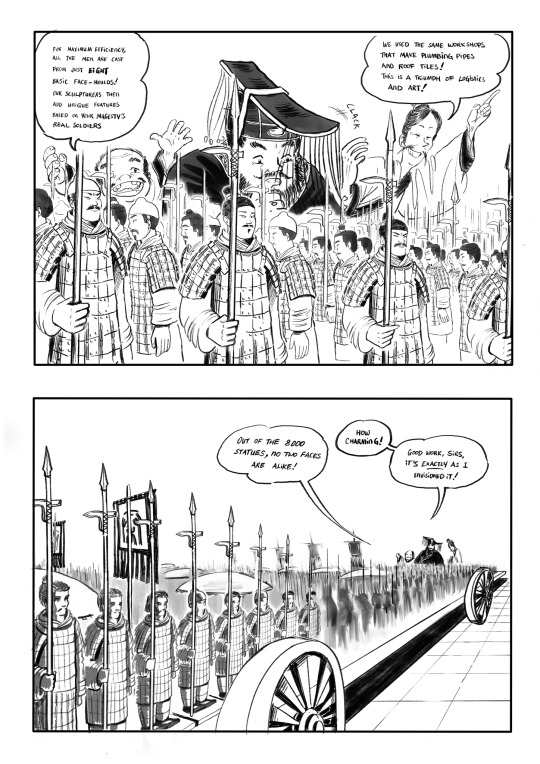
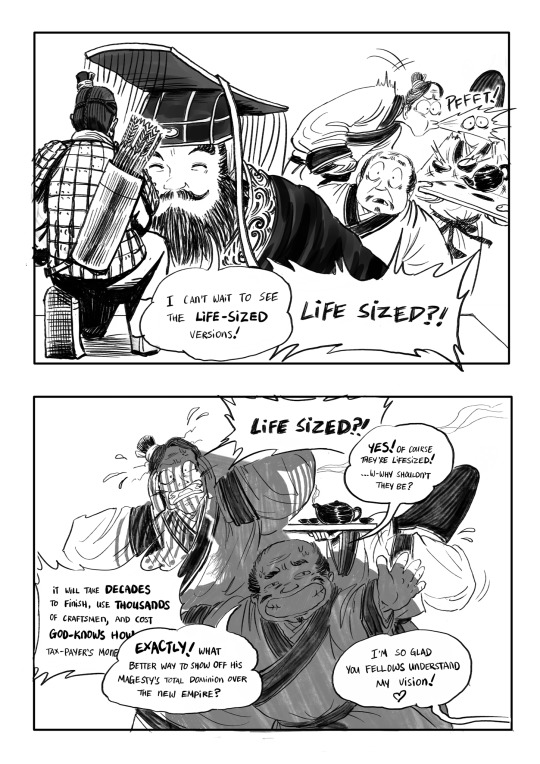
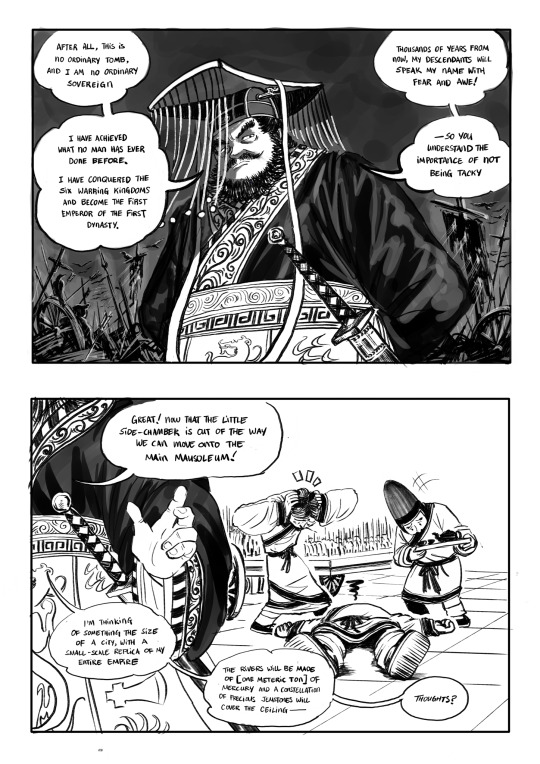
—Terracotta—
Ok so I visited xi'an during my trip back to china (3 months ago?), and this idea popped into my head during the 9h train ride back to shangdong. I am of course 100% projecting my own love of the terracotta army onto Qin Shi Huang, in reality he did not care for this pit of mud statues depicting lowly commoners. In fact, no one ever bothered to write about it and they were lost to history until 1974 when some farmers digging a well stumbled upon them. But it's exactly the reason I'm so fascinated by them. QSH's tomb has not been excavated, and although I have a running joke about cracking it open--mercury vapors be damned--none of the riches inside will ever enchant me as much as the chance to see the face of a person who lived during this time.
Notes under the cut:
#1
the title Qin Shi Huangdi means "First Emperor of Qin" and was given to QSH by later historians. He actually called himself the Shi Huangdi, "First Emperor", and that is the title I've gone with here.
in English the other kingdoms are translated as "states" (i guess to avoid confusion?) but in chinese they are very much kingdoms.
The terracotta warriors used thousands of craftsmen, many of whom were slaves from conquered kingdoms. From a storytelling perspective I thought it would be more streamlined if there were two main artisans who reported directly to QSH.
QSH's clothes are based on the overly complicated courtly regalia. which has 12 symbols that only the emperor is allowed to wear
Notice how this hat is ROUND at the front??? Well I CERTAINLY DIDN'T. HAD TO REDRAW IT!!!!!
the stripped shirt is based on this Chu woman figurine. Clothes were fairly unisex during this time and I thought it was a nice fit.
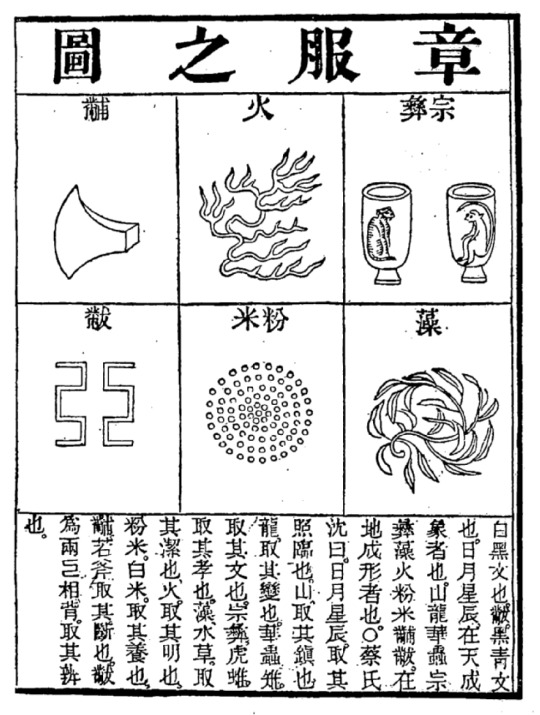
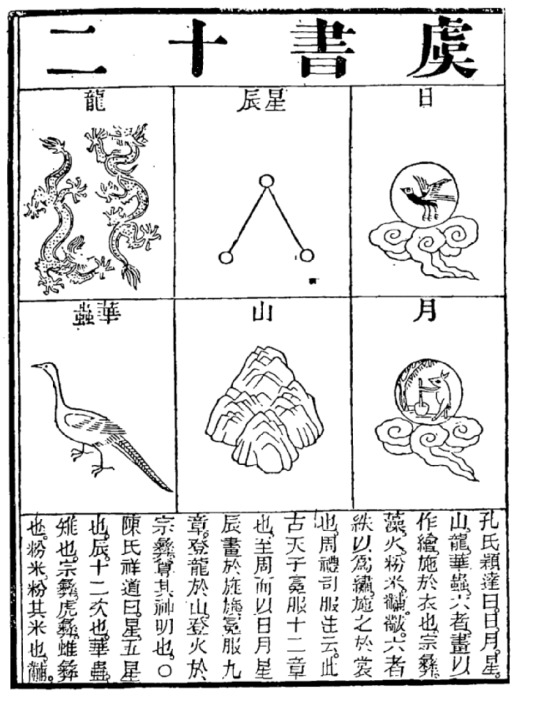
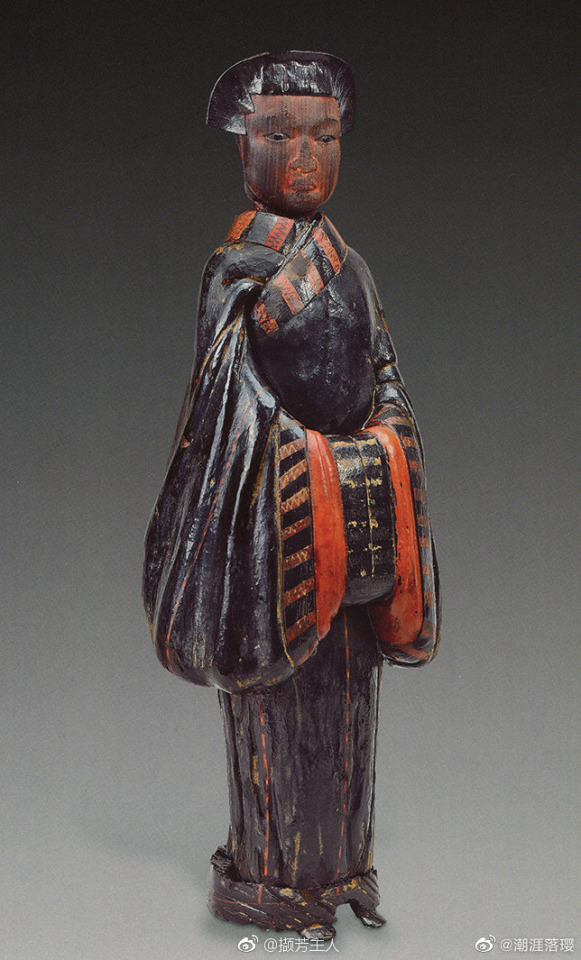


#2
Paperwork: writing was done on books made of bamboo slips. Anecdotally, QSH had an impressive work ethic and would read 100 bills every night.
Bronze Goose lamp: ok this is actually a Han dynasty lamp pls forgive me. I saw this bad boy at the xi'an history museum and it's bewitched me body and soul. The goose neck is hollow and connects to a reservoir of water in the belly, which minimizes smoke and cools the lamp.
QSH is remembered as a brutal tyrant and brilliant statesman, but I wanted to present a more human version of him here. Bored, tired and drowning in work he refuses to delegate. His new empire is balanced as precariously as everything else on his desk.
#3
The attendants standing behind him are holding little wood tablets called hu for taking notes. Their brushes are tucked into their hats/hair, inspired by Han dynasty custom. (You'll see me using Han stuff a lot. Their cultures were very similar to Qin, since it was only a few hundred years apart).
So I had a slight breakdown trying to find the correct hats for the eunuchs, and ended up redrawing everything the night I was due to publish. Closest thing I could come up with was a reference to a round-style Han Dynasty hat which evolved into this square Jin hat. Yes, this is a cry for help .
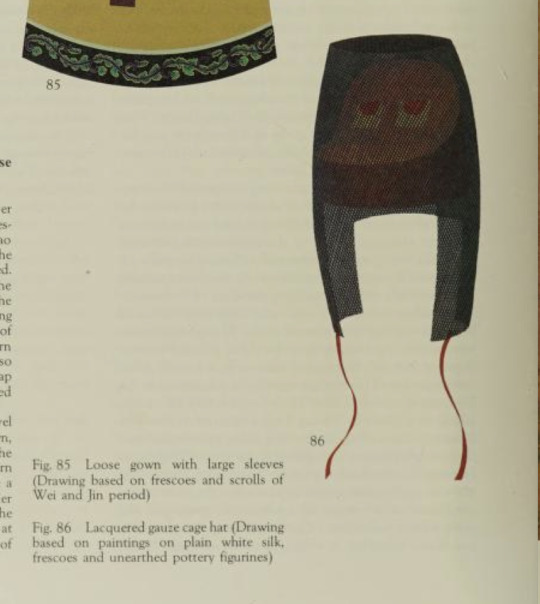
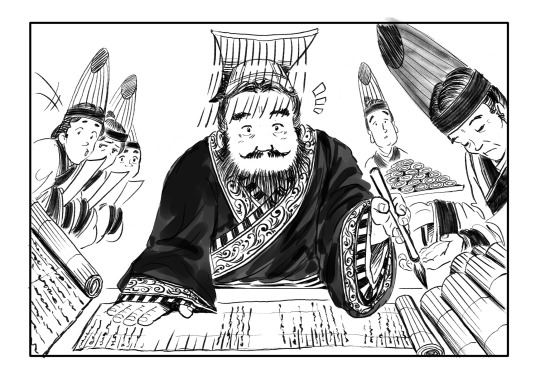
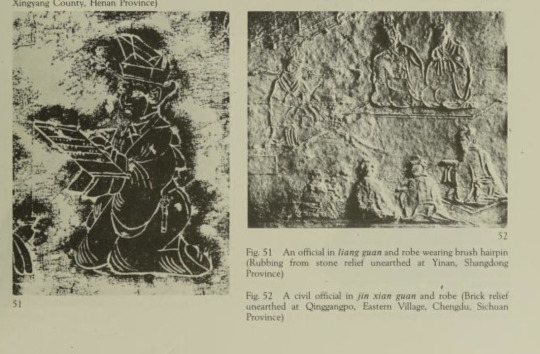
#4
the wheeled platform is 100% made up, I tried to come up with a plausible way of getting a bunch of figurines into the palace.
#5 & #6
Painted terracotta soldier
How were the terracotta warriors made
The General: Fun fact, I got to see this guy in person!
#7
The Epic Wide Shot was inspired by some Tang Dynasty terracotta figures I saw at the xi'an museum!
#8
THIS KNEELING ARCHER. ARGGGGG. He use to be my favourite guy. I even went into the pit and drew him IN PERSON. the archers inexplicably have their hair buns on the OPPOSITE SIDE OF THE HEAD. So because of him, I DREW ALL THE HAIR BUNS WRONG!!!! REDRAW!!!! PAIN AND SUFFERING!!!!
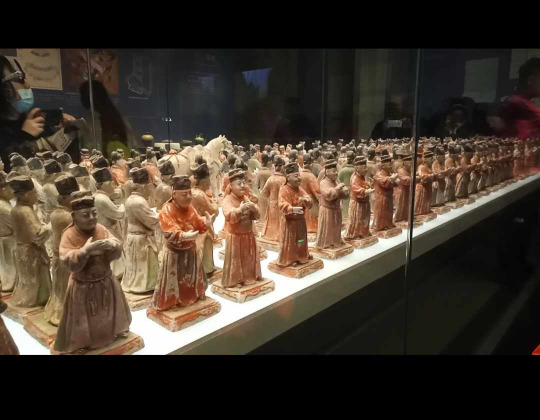
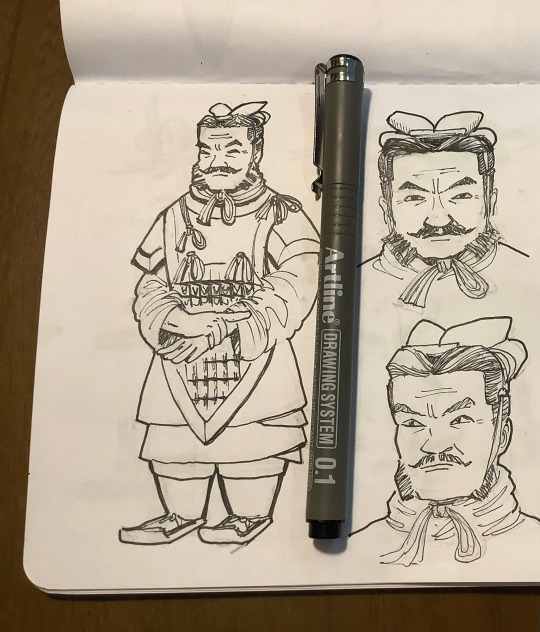
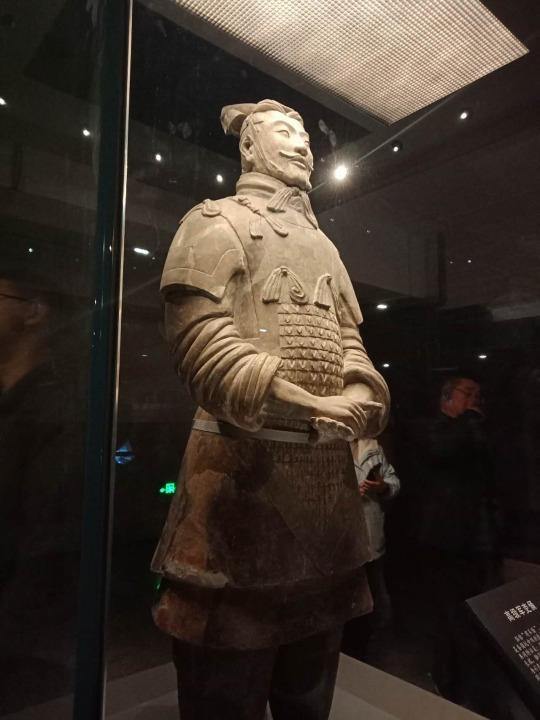
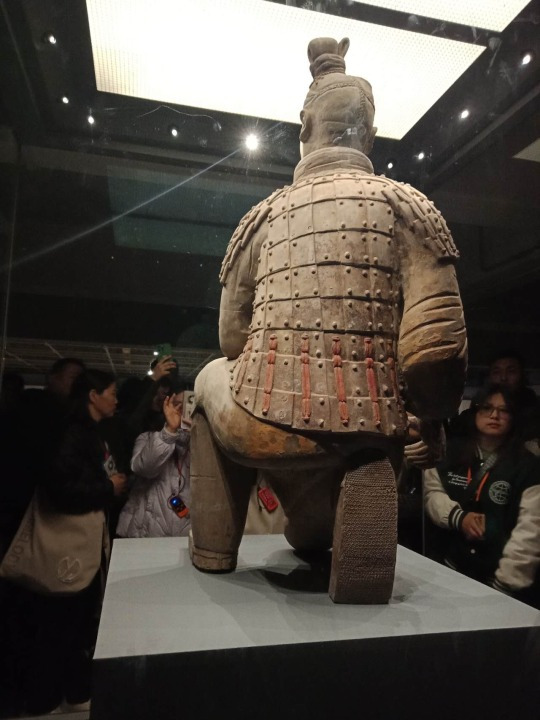
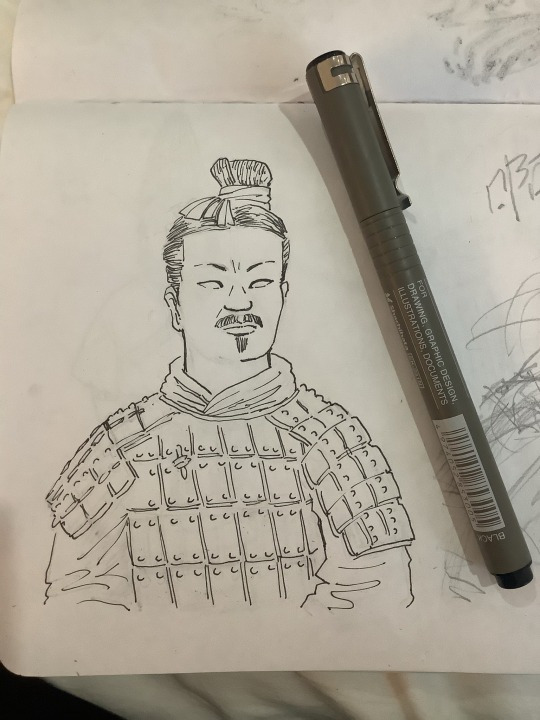
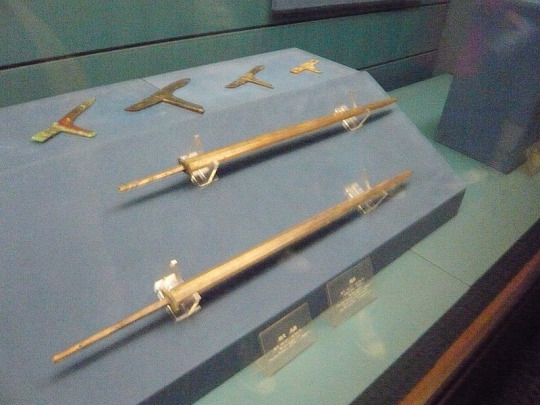
#10
Qin was famous for it's very long, thin swords. They were more useful as status symbols than actual weapons, as QSH knows from personal experience…
#11
QSH'S Tomb hasn't been excavated yet, but high levels of mercury have been detected in the soil, making the historical accounts of quite plausible.
#chinese history#warring states period#qin dynasty#qin shi huang#terracotta army#comics#my art comes with homework lol#art
201 notes
·
View notes
Text
“Roaming into immortality”: Ten Desires and the history of Taoist immortals

As promised last month, following the freshly established tradition I have another Touhou research post to offer. This time, we’ll be looking into the literary traditions focused on Taoist immortals (or, following the Touhou convention, “hermits”, though this is a less suitable translation) and how they influenced Ten Desires. Due to space constraints and thematic coherence, note that only Seiga, Miko and Yoshika will be covered.
Before you'll begin, I need to stress that one of the sections requires a content warning. While all images are safe for viewing, there's a description of a potentially unpleasant episode involving unwanted advances, and various events leading to that; I highlighted that before the relevant paragraphs too just in case.
“Hermit”, “immortal”, “transcendent”
A post about Ten Desires must start with an introduction of the term sen, the Japanese reading of 仙, Chinese xian. Touhou specifically uses its less common derivative 仙人, sennin, though that's just a synonym. Touhou-related sources basically invariably translate this term as “hermit”. While this option can be found elsewhere too, it is not exactly optimal.
“Immortal” is actually the standard translation for both sen/xian and sennin, as far as I am aware. I did a quick survey of recent publications on Brill’s and De Gruyter’s sites and the results were fairly unambiguous, especially for books and articles published after 2000, with “hermit”, “wizard” and other alternatives being quite uncommon. The trend is not new, with sennin already translated as “immortal” in the 1960s.
When it comes to xian/sen, in a few cases arguments were made that “transcendent” or “ascendent” would be a more suitable option as it better illustrates the position of these beings, though this is a relatively recent trend, for now limited to Sinology. The idea behind it is that immortality is just one of multiple characteristics attributed to the xian, and it is ultimately the transcendence to a higher level of existence that’s the key element. I personally think the argument is sound, but not all translators have embraced it, and for now the choice is really a matter of preference. Since “immortal” is more widespread, and most of the sources in the bibliography use it, that’s what I will employ in the rest of the article, save for direct quotes from Touhou, where "hermit" will be used.
Early history of immortality in Chinese sources
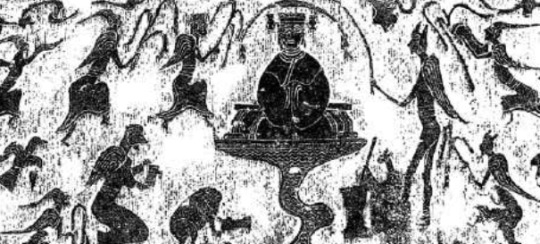
Feathered immortals worshiping Xi Wangmu (from Betwixt and Between: Depictions of Immortals in Eastern Han Dynasty Tomb Reliefs by Leslie Wallace; reproduced here for educational purposes only)
The notion of pursuit of immortality, or at least longevity, is first attested in Chinese sources in the eighth century BCE, when the first bronze inscriptions revealing their authors wished to avoid death altogether appear in the archaeological record. However, the ideas which directly lead to the development of the concept of immortals as discussed here only started to develop in the fourth BCE. Initially they were associated with so-called fangshi, a class of multi-purpose esoteric specialists who often served for example as court diviners.
These ideas developed before the unification of China by Qin Shi Huang, but their importance grew after this event, as many of their proponents were warmly received in the courts of Qin and Han emperors. Some of them, like Wu of Han, even sent expeditions in search of distant lands where immortals purportedly lived, of which Penglai is the most famous.
As a curiosity it’s worth mentioning here that the reception of these pursuits was actually mixed in Chinese historiography. Some of the rationalist Eastern Han authors such as Wang Chong evaluated it critically, basically describing it as a waste of time and resources leading to poor governance.
We know relatively little about the development of beliefs focused on immortality outside of the imperial court in the Han period, though it is evident that they gained considerable prominence, and it’s even possible to speak of “immortality cults” among the general populace. That’s for example seemingly how the worship of Xi Wangmu, arguably one of the most famous Chinese deities, became widespread. Tomb paintings showing blissful immortals also appear in this period.
In art immortals were initially depicted as winged, feathered beings. The origin of this tradition remains unclear, though it has been noted that various similar bird-like beings are also listed in the Classic of Mountains and Seas, attesting to this being a widespread motif in early Chinese tradition. You might be familiar with portraying immortals as wizened sages instead. This convention only developed when the image of the immortal merged with that of the ascetic hermit in the Eastern Jin period - more on that later.
Immortals in Ge Hong’s Baopuzi

A 20th century illustration of Ge Hong (wikimedia commons)
The first formalized instructions for the pursuit of immortality were compiled during the reign of the Eastern Han. Some of them were rooted in the early Taoist tradition, which at the time was also being partially formalized under the Way of the Celestial Masters. Seemingly many Taoist works dealing with these matters were compiled, but most of them are only known from references in Ge Hong’s Baopuzi, one of the most important texts for the study of the history of ideas about immortality.
Ge Hong states that immortality can be obtained through personal virtue and specific practices, including exercise, following strict dietary restrictions and, most importantly, through engaging in alchemy, which he hails as the most effective. All the means to obtaining immortality were unified by one principle: cultivating qi, both by maintaining one’s own and by absorbing it from the right kinds of plants and minerals. Grains were held to be inappropriate food for those pursuing immortality, as it was believed they nourished the so-called “three worms”. The final goal was to be able to use morning dew or light for sustenance. The easiest way to move towards that goal was believed to be consumption of alchemical elixirs, said to possess a more potent, refined form of qi of all their carefully selected ingredients.
Needless to say, many of such magical concoctions were highly poisonous thanks to the inclusion of mercury, cinnabar and other similarly exciting substances. Ten Desires describes the consequences pretty accurately: Miko “turned to the use of various unusual materials, such as cinnabar” which “ruined her body”; as a result she “destroyed her health because of the very Taoism that was meant to grant her immortality”. Such a fate is not historically unparalleled, and there is even a strong case to be made that the notoriously erratic behavior of some of the particularly immortality-obsessed emperors was the result of alchemically induced heavy metal poisoning.
Cinnabar cocktails aside, a further important piece of information from Baopuzi is the reference to three classes of immortals, celestial (天仙), earthbound (地仙) and corpse-liberated (尸解仙). What separated these three groups was the degree to which they perfected their state before formally attaining the rank of immortal. The most refined were basically invited into heaven, with the best of the best taken there on the back of a dragon. Those who despite their efforts lacked something had to put in some additional effort themselves instead.
While the "celestial" and "earthbound" immortals are largely self-explanatory (we'll go back to them later, though), the label of “corpse-liberated” warrants a more detailed explanation. It refers to those who settled for faking own death. This act is called shijie (尸解), and involves substituting the body for an object, which is to be buried as if it was a person. Of course, immortality obtained this way was effectively second rate, though it was not impossible to become a proper celestial immortal later on. As you can probably notice, this is precisely the path to immortality ZUN has chosen for characters in Ten Desires. The term shikaisen used multiple times in the game is in fact simply the Japanese reading of 尸解仙.
Immortals in secular literature
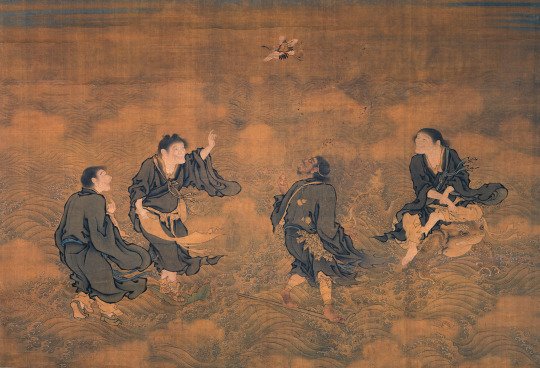
Four Immortals Saluting Longevity by Shang Xi (wikimedia commons)
The importance of the search for immortality grew during the Six Dynasties period. Seemingly in all strata of society a common reaction to frequent political turmoil was to seek solutions in Taoism and still relatively new Buddhism. This in turn left a huge impact on Chinese culture of this era as a whole.
What is of particular relevance for this article is less the straightforward religious dimension of immortality, and more its reflection in literature. Works about immortals were already being written in the Western Han period, with the oldest surviving example being Liexian Zhuan (列仙傳) attributed to Liu Xiang, who lived in the first century BCE. Their importance only grew with time due to the aforementioned process, and they became a well established part of both poetry and prose. For example, a sixth century treatise on literary genres, Xiao Tong’s Selections of Refined Literature (文選; Wenxuan), pretty much the main source to fall back on in the study of pre-Tang literature, recognizes youxian (遊仙), literally “roaming into immortality”, as a distinct type of lyrical poetry. There’s a considerably degree of nuance to this term, since 遊 has the implications of leisurely, playful activity, but these lexical considerations are beyond the scope of this article.
While in some cases the tales of immortals focused on figures primarily known for other reasons, like the Yellow Emperor, Chang'e or Laozi, many document the lives of historical pursuers of immortality instead. Well attested fangshi and Taoist masters appear in such a context, for instance Anqi Sheng or Liu An (according to a legend he ascended to heaven with his entire household, including dogs and other animals).
The literary biographies, or rather hagiographies, of immortals often highlighted their personal eccentricities, tied to their detachment from society. The archetypal eccentric immortals are obviously the members of the group popularly known as the Eight Immortals, though this is a much later development, and the genre conventions formed centuries earlier.
Literature about immortals is interesting from a modern perspective because at least in part it was arguably a secular pursuit. As secular as something could be prior to the rise of the modern notion of secularism, that is (see Mark Teeuwen’s article on Edo period secularism for some arguments against seeing secularism as an entirely modern phenomenon). This is not merely the modern perception, for clarity - the earliest statements to that effect can be found in works of literary criticism from the second century or so. The writers were chiefly scholars, courtiers and officials, not clergy, and naturally their works are not recognized as “canonical” Taoist literature.
Some of these authors took the topic of immortals into rather peculiar directions. According to Xiaofei Kang, during the Six Dynasties period amorous encounters with female immortals (仙女, xiannü) were a “fashionable topic among literati”, while in the subsequent Tang period some authors compared courtesans they sometimes were actually involved with to immortals metaphorically. She notes that they effectively created a genre of works focused on immortals which was no longer really describing the pursuit of immortality, but rather “encounters with enchanting beauties, both real and imagined”.
Needless to say, the literature about immortals remained relevant in later periods, and new stories continued to be written under the reign of subsequent dynasties. Many can be found in Pu Songling’s famous Liaozhai (Strange Tales from a Chinese Studio). This collection was written in the Qing period and remains in wide circulation today as a literary classic.
Pu Songling’s tale of Qing’e: the origin of Seiga
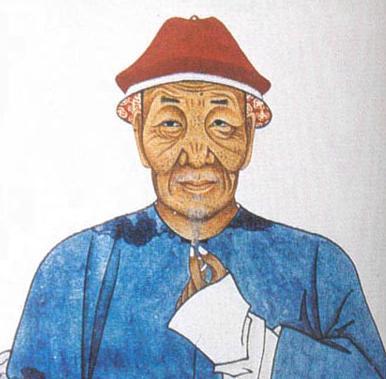
Pu Songling (wikimedia commons)
It is beyond the scope of this article to discuss all of Pu Songling’s tales about immortals, but there is one which necessitates further discussion, namely Qing’e, which is very obviously the basis for Seiga’s character. This makes her somewhat unusual among Touhou characters - while the story she is based on deals with religious themes, and fiction can shape religious views at times (as evidenced by the popularity of Sun Wukong or the image of hell in Divine Comedy), I found no indication Qing’e was ever views as anything but a literary character.
Like the rest of Liaozhai, the Qing’e tale has been translated into English in the 2000s. Songling’s works have an older and more famous translation too, but it’s just a selection, and it has many issues, which you can read about here. You can read parts of the more modern translation on Google Books. Obviously it can also be found easily in other places. I will also summarize the story of Qing’e below for convenience.
This is where the content warning I mentioned applies: the story is not very explicit, but there are is a scene of what I think counts as attempted sexual assault and other generally unsavory moments of that sort, so if that bothers you, skip ahead to the next section.
The beginning of the story introduces a certain Huo Huan (霍桓) from Shanxi, a sheltered young man of unspecified age (he’s older than 13 but “ignorant of adult desire”, which is pretty vague). He lives in the same neighborhood as the eponymous Qing’e (青娥), a teenage daughter of a certain mr. Wu (武), who was apparently a devout Taoist. Qing’e secretly read through her father’s personal collection, developing an admiration for He Xiangu in the process. When mr. Wu left for the mountains to become an immortal, his daughter declared she will never marry. Her decision is presumably meant to mirror one of the versions of the tale of He Xiangnu, who reportedly attained immortality by remaining celibate and consuming mineral powders (granted, you can also find versions where her immortal career started when she was seduced by Lü Dongbin, but that does not match the story here).
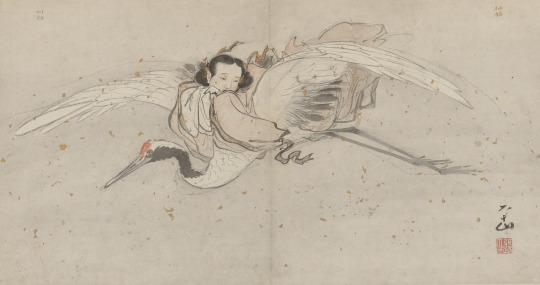
He Xiangnu by Zhang Lu (wikimedia commons)
Huan sees Qing’e outside at some point and, without really talking to her, decides she has to marry her and asks his mother to send someone to arrange that. she doesn’t think it’s a good idea, but eventually caves in. Lo and behold, it doesn’t work and the Wu family is not interested in the proposal. Huan then meets an unrelated Taoist, who offers him a magical tiny spade (one chi long) used to dig up Taoist-preferred herbs (a key component of the immortality keto diet), which can quite literally hack through stone. This convenient deus ex machina gives Huo the idea to hack through the walls of the Wu residence to see Qing’e. Note that the narrator does not approve of this plan, and calls it an “illegal act”. Alas, it comes to pass anyway,
With this newfound power Huan watches Qing’e undress before she goes to bed and then listens to her breathing while she is asleep, as one does with women they saw exactly once before. Eventually he falls asleep himself on her bed. Needless to say, when Qing’e wakes up she is less than thrilled and summons her servants. They assume Huan is a thief, but he tries to explain himself. He’s set free, but the magical tool is confiscated.
Since Huan does not know when to quit, he arranges for a second round of matchmaking afterwards. While apparently Qing’e is cautiously optimistic about it this time, her mother is less than thrilled after learning there are now holes in their residence’s walls. She insults the matchmakers, Huan and Huan’s mother. This in turn makes Huan’s mother angry. She apparently concludes that Huan and Qing’e had sex, and declares that instead of damaging her good name someone should’ve just killed them both on the spot. Qing’e is genuinely sad about this and sends a messenger to smooth things over. However, ultimately nothing really comes out of it.
Some time later, Huan starts a career as a helper of his town’s magistrate, Ou. The latter is surprised to learn he is not married yet, and after hearing about his unsuccessful endeavors intervenes himself. With the help of other local officials he secures the permission of Qing’e’s mother, and the marriage is officially arranged.
A year later, Qing’e arrived at Huan's home. She brings the magical tool with her, and declares that it is no longer needed. However, Huan decides to carry it with him as a good luck charm, pointing out acquiring it was what led to their marriage. Some time later newlyweds have a son, Mengxian, but Qing’e is not interested in raising him and entrusts that entirely to a nurse. After some more time, in the eighth year of their marriage, she announces to Huan that their time together is coming to a close, and there is nothing to be done about this. Shortly after that, she seemingly dies, and Huan and his mother bury her - or so they think, at least.
In the aftermath of this event Huan’s mother falls sick, and inexplicably develops a craving for fish soup, which is hard to obtain in the area the story takes place according to the narrator. Huan, as a staunch believer in filial piety, decides to embark on a journey to procure some. He is initially unsuccessful, but he manages to get some from Wang, an old man he encountered in the mountains. The latter also offers to introduce him to a beautiful woman, but Huan is focused on the quest for fish soup and declines.

Contemporary Chinese fish soup (wikimedia commons)
With the power of fish soup Huan’s mother’s health is restored, and when it becomes clear she’s going to be fine he decides to seek Wang again. He does not find him, but after a long trek in the mountains he instead stumbles upon an unusual cave. Unusual because there’s a house inside it. a house which, as it turns out, is inhabited by Qing’e.
Qing’e is surprised to see Huan. She explains that she faked her death and in reality a bamboo cane was buried in her place. She concludes that if Huan found her, they are presumably fated to be together as immortals. He is then taken to her father, who as established earlier also became an immortal. The initial reception is positive, but Huan makes a scene demanding that Qing’e have sex with him and keeps clutching her arm when she declines. Qinge’s father intervenes, and kicks him out for attempted sacrilege in his hermitage.
Alas, Huan can’t get a clue as already established. He cannot see the house anymore because due to a trick there’s only a cliff in front of him after the doors close, but that’s not really enough to stop him, as he suddenly remembers he has the magical tool with him. He starts digging, and despite insults hurled at him from behind the rocks eventually makes a sizable hole in the cliff. At this point someone, presumably Qing’e’s father, gets fed up, and throws Qing’e out through the hole to get him to leave.
Qing’e, to put it lightly, is not very keen on this turn of events. She nonetheless returns with Huan to his house. Shortly after that they moved elsewhere, to Yidu, where they lived for eighteen years. Qing’e at some point gave birth to a second child, a nameless daughter, who doesn’t really factor into the story. All we hear about her is that she married into a local family.
Eventually Hano’s mother dies. Qing’e picks an auspicious location for her resting place, and tasks Huan and Mengxian with preparing the burial. A month later, she and Huan disappear, leaving the new adult Mengxian alone.
In the final scene of the story, Megxian, who apparently spent the first twenty or so years of his adult life unsuccessfully attempting to pass the imperial examination, meets a certain Zhongxian, and is amazed to learn they bear the same surname. The two quickly realize they’re brothers, and decide to meet with their parents, but they fail to accomplish that since they left Zhongxian’s house in the meanwhile.
The narrator comments that while Huan’s actions were “foolish” and “crazy”, everything he had striven for was granted to him as a reward for his filial piety, and then marvels why nobody stopped him and Qing’e from having more inevitably abandoned children. “That’s really strange,” he remarks.
Seiga’s character between ZUN’s innovations and Taoist tradition

Seiga explaining the powers of a hermit; if only there was a term which makes this explanation even more straightforward... (WaHH chapter 12.1)
As you’ve probably noticed, Seiga’s bio in the Ten Desires omake is remarkably faithful to the adapted source. Even her name is just a Japanese reading of the combination of Qing’e’s given name with the family name of her husband. It does not seem that everything unfolded identically in Touhou, though. There is no indication in the bio, or anywhere else for that matter, that Seiga went back after faking her death, and we instead learn that she decided to travel to Japan, since Taoist “hermits” were uncommon there. Additionally, Seiga presumably kept the confiscated chisel, since her ability, which she eagerly demonstrates in Wild and Horned Hermit, is rather obviously a direct reference to the tale of Qing’e. I will admit that while I do not question Pu Songling’s talent and enjoyed many of his tales, I think ZUN’s version is more satisfying than the original, perhaps because from a modern perspective Qing’e is arguably a more compelling protagonist than her husband, and Touhou effectively treats her as the main character in this story.
Something that I believe is relatively well known is that Seiga’s entire character is a bit of an anachronism: to encounter Miko, she would need to be alive through the end of the Six Dynasties period already. However, since ZUN adapted much of the tale of Qing’e directly, like her forerunner she idolizes He Xiangnu, who according to legends about her was only born in the Tang period, and attained the status of an immortal in the early eighth century, during the reign of emperor Zhongzong - nearly a century after Miko’s semi-historical counterpart passed away. I do not think this mistake is meaningful. Save for the references to He Xiangnu and imperial examinations, the tale of Qing’e is set in a largely timeless world. I would presume it’s just a small mistake on ZUN’s part, and he didn’t check the chronology while summarizing the part of the story he wanted to use in Seiga’s bio. There is no need to ponder if Seiga’s power lets her travel in time, as the wiki (which, as we all know, prides itself in maintaining “neutrality” and enforcing correct exegesis of the source material, especially Hisami’s bio) does.
There is a further aspect of Seiga’s character which might evoke works about immortals, though I am not sure if this was intentional. As we learn from her entry in Symposium of Post-Mysticism, she “cannot become a celestial due to her personality, but that does not seem to bother her”. The term dixian which I already brought up before designated immortals who were not interested in ascension to heaven. According to Ge Hong, there were actually many benefits to such a fate, and while nominally a dixian ranked below a tianxian (in Touhou terms, a celestial), they had much more freedom. He states that the archetypal immortal Peng Zu, who spent over 800 years on earth, did so because the upper echelons of the heavenly hierarchy are occupied by well established deities, and any immortal joining their ranks would be burdened with tiresome tasks and obliged to act as servants, making their life less enjoyable than it would be on earth.

Peng Zu (wikimedia commons)
Poetry describing the earthbound immortals originally developed in the third and fourth centuries. Parallels can be drawn between their protagonists who reject the celestial bureaucracy with a different class of literary characters popular at the same period - non-conformist recluses who did not care about the mundane, earthly administration. The dixian is essentially a merge between the classical supernatural immortal and the archetypal hermit. This sort of immortality was a metaphor for unrestrained freedom first and foremost.
I will stress again that I have doubts about whether ZUN was aware of this when he came up with Seiga, but it certainly does fit her well. Also, more recently, in Who’s Who of Humans and Yokai in Gensokyo he actually says that “she may be the most hermit-ish character here”. I’d hazard that even if he was not aware of this idea before, he probably is now, in some capacity at least. It’s not like Seiga’s status as a “wicked hermit” was ever tied to lack of interest in heaven, as opposed to necromancy, so this does not contradict anything established.
Reception of Chinese tales about immortals in Japan
Obviously, ZUN is not the first person in Japan to adapt literature about immortals.Something that needs to be stressed before delving deeper into the topic is that transfer of beliefs, and especially tales, pertaining to immortals to Japan did not constitute the spread of Taoism as an organized religion. It is instead simply an aspect of the widespread adoption of elements of Chinese culture. While Taoist ideas were an aspect of this phenomenon, we know relatively little about how they were transmitted to Japan, though there was clearly no effort to introduce the religion itself in a formal manner the way Buddhism was. This topic ultimately can’t be explored here in detail due to space constraints. but most likely what occurred was gradual introduction of certain elements in informal contexts: through art, Buddhist borrowings or poorly documented individual ventures.
The earliest recorded example of reception of motifs related to immortals in Japan is likely the tale of Tajimamori from the Nihon Shoki, which involves a quest for items granting immortality. The much better known tale of Urashima Taro, also preserved in this source, is another candidate, and as a matter of fact was recognized as an example of literature about immortals in the Heian period already.
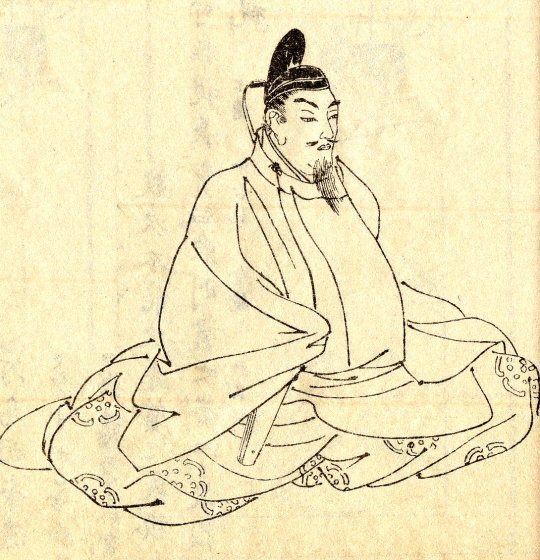
Ōe no Masafusa (wikimedia commons)
However, our main source of the early Japanese perception of immortals are not the early “national chronicles”, but rather Honchō Shinsenden (本朝神仙伝). Its author was Ōe no Masafusa (1041-1111), an official and scholar from the Heian period. His career culminated when he was appointed to the prestigious position of the governor of Kyushu, though he eventually abdicated to dedicate himself to writing. His work is classified as an example of setsuwa. At the same time it is also firmly tied to the already discussed tradition of Chinese secular immortal literature, and can effectively be considered an attempt at creating a Japanese equivalent of collections of biographies of immortals. Obviously it has its own unique peculiarities to offer too.
Masafusa’s work presents an interesting case of fusion of the Taoist-influenced Chinese notion of immortality with Buddhist ideas: the immortals are compared to hijiri (Buddhist “holy men”) and “living Buddhas” (ikibotoke). This is not entirely a novelty, as while Buddhists are absent from Chinese compilations of biographies of immortals, Laozi’s ascent to immortality was nonetheless at times described in similar terms as Buddhist Nirvana, at least in sources from the fifth century. There was also a preexisting Buddhist tradition of legendary long-lived patriarchs awaiting the coming of Maitreya or simply extending their lifespans to save more beings. Therefore, while innovative, this combination of Taoist and Buddhist elements was hardly something unparalleled or contradictory.
The selection of figures described as immortals in Honchō Shinsenden is also a bit different than in its Chinese forerunners. Legendary heroes and historical statesmen do show up, as expected. However, alchemists and members of Taoist clergy are missing, since they were not exactly common in Japan. Buddhist monks effectively replace them as the main social group among immortals, though it does not seem religious devotion is the deciding factor. Ultimately there is no clear pattern, not even that of virtuous life: Masafusa’s immortals as a group are not meant to be moral examples, even though some of them are portrayed as paragons of virtue.
It seems ultimately what Masafusa wanted to do is present stories he personally found interesting or awe-inspiring, and there was no religious aim behind his work. Some of his choices were actually criticized as inappropriate by his contemporaries, in particular the inclusions of Zenchū and Zensan, who according to polemics were not immortals, but merely devout Buddhists taken into a Pure Land (a heavenly realm created by and inhabited by a Buddha) in their current forms, without reincarnation. This argument follows the well established aspect of esoteric Buddhist doctrine, which enabled the possibility of achieving enlightenment in one’s current incarnation.
A total of thirty seven tales formed the original manuscript, though not all of them survive. They range from long, grandiose narratives about figures like Yamato Takeru and En no Gyoja to brief, almost comedic accounts of the tribulations of anonymous figures such as the “stick-beaten immortal” (who learned how to levitate, but only up to the height of one shaku, which meant that he could not even escape children hitting him with sticks) or the “old seller of white chopsticks” (whose title tells you a lot about his economic situation). Only two are ultimately important here, though: those of the semi-historical prince Shotoku, and the firmly historical poet, historian and eccentric Miyako no Yoshika.
Simply put, I believe Honchō Shinsenden is responsible both for the portrayal of Shotoku as a Taoist immortal and for the inclusion of a character (vaguely) based on Miyako no Yoshika in Ten Desires.
Honchō Shinsenden’s Shotoku and Toyosatomimi no Miko
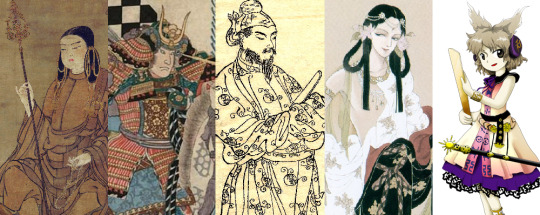
The image of prince Shotoku through the ages
Prince Shotoku (聖徳太子) is one of the highest profile figures to ever be portrayed in Touhou, and as such arguably requires no lengthy introduction. He purportedly lived from February 7, 574 to April 8, 622, and served as a regent on behalf of his aunt, empress Suiko. He is traditionally credited with spreading Buddhism in Japan, ordaining numerous monks, writing commentaries on sutras, vanquishing rivals such as Mononobe no Moriya with the help of the Soga clan, and so on. He might have not existed at all, or perhaps he did, but played nowhere near as major of a role in Japanese history as traditionally assumed. The academic debate started a few decades ago, and remains ongoing. Its outcome isn’t really important here, since regardless of Shotoku’s disputed historicity, he came to be well established both as a religious figure and as a literary character. At various points in time and for various people, Shotoku was, in no particular order, the ideal statesman, a manifestation of Kannon, a peerless military commander, a yaoi protagonist and, most importantly, an immortal.
In Honchō Shinsenden, Shotoku is referred to as “prince Jōgu” (上宮), though we do get the mandatory Shotoku namedrop indirectly when his virtue (聖徳) is highlighted.. He is actually one of the two only of the listed immortals who can be classified at least vaguely as “statesmen”, the other being Yamato Takeru. For unknown reasons, Masafusa got some details wrong: according to him Shotoku’s father was Bidatsu. This view is unparalleled, and there is no real reason to doubt the conventional genealogy, which firmly positions him as a son of Yomei and his half-sister Anahobe no Hashihito. We learn that his birth was foretold by a dream in which his mother saw a golden figure who entrusted her with a child who will spread the dharma. This is in itself a combination of Taoist and Buddhist elements, seemingly an attempt at imitating a legend about the birth of Laozi, which in turn depended on a legend about the birth of the historical Buddha.
Naturally, Shotoku already displayed supernatural abilities as a child. Masafusa reports that whoever touched him was imbued with a “lasting fragrance”. A variant of the well known tale which his Touhou counterpart’s name and ability reference is presented here too, though a key detail differs - Shotoku can listen to eight, rather than ten, people according to Masafusa. This is not unparalleled, and therefore probably isn’t a mistake unlike the unexpected genealogical change mentioned before.
A major event from Shotoku’s life relayed by Honchō Shinsenden is an alleged meeting between him and Illa (Nichira), a Korean monk living in Japan. The historicity of this episode is debatable, as Illa died when Shotoku (if he was real in the first place, of course) was only eleven years old. He identifies the prince as the bodhisattva Kannon, and pays respect to him as such. In response Shotoku emitted a beam of light from between his eyebrows, which reflects both Taoist and Buddhist traditions about manifesting supernatural powers.
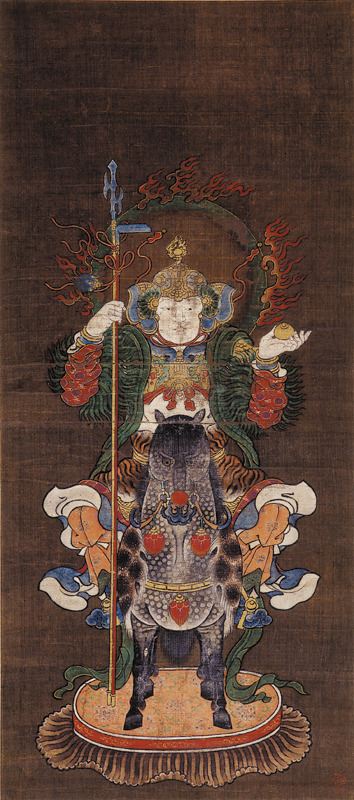
Illa's alter ego Atago Gongen (wikimedia commons)
Interestingly, Illa responds by doing the same, thus revealing his own supernatural character. We know from other sources that Illa could be identified as the true identity of Atago Gongen, the tengu-like deity of Mount Atago. Bernard Faure notes parallels can be drawn between his portrayals as a foreign supernatural ally of Shotoku and as the human alter ego of a deity with the traditions pertaining to Hata no Kawakatsu. There is also an “immortal of Mount Atago” in Honchō Shinsenden, but his identity is left unspecified. It's worth noting that in Symposium of Post-Mysticism Byakuren and Marisa at one point discuss the existence of “hermit-like tengu”. Illa truthers… we can make it happen if we believe strong enough… Jokes aside, I’m actually cautiously optimistic that Illa might some day end up being the first Korean character in Touhou, at least implicitly. Given the inclusion of references to Hata no Kawakatsu, odds are decent ZUN knows about him too.
In another anecdote, we are introduced to another member of Shotoku’s supernatural supporting cast, the black steed of Kai. This horse is credited with being able to travel the distance of a thousand ri in a single move. This is seemingly an adaptation of a Taoist motif too, as immortals were believed to favor traveling on supernaturally fast steeds, or in cloud chariots drawn by such animals, or to move instantaneously through other means. The fabulous distance of 1000 (or even 10000) ri is conventional, too.
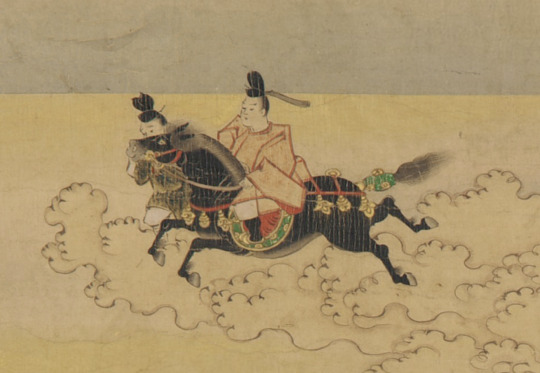
Shotoku traveling through the sky on his supernatural horse (Smithsonian Institution; reproduced here for educational purposes only)
Of course, the black steed (kurokoma) is also the very same horse that served as the basis for Saki. While allusions to this connection is probably the second most common genre of fanart of her, it surprisingly took ZUN four whole years to acknowledge it outside of a track title, specifically through two lines in the vs mode of Unlimited Dream of All Living Ghost. Time will tell if anything will come out of it, I’m personally skeptical seeing as we have yet to see a canon work do anything with the connection between Okina and Hata no Kawakatsu even though it was acknowledged in an interview. I hope I am wrong, though.
Shotoku’s various accomplishments are not described in detail, though Masafusa does bring up his famous seventeen articles constitution and the establishment of Shitenno-ji, and additionally states that teachings linked to the Yuezhi people from Central Asia were associated with it (unique opportunity to justify bringing Central Asian deities like Nana and Weshparkar into Touhou).
The final and most important part of Shotoku’s biography, the circumstances of his death - or rather his acquisition of immortality - is only partially preserved. According to Masafusa, one day he simply informed his wife (presumably Kawashide no Iratsume, as opposed to one of the other three wives) that he cannot exist anymore in a “defiled” world and “transformed” himself. It is actually not explained how he even mastered the techniques allowing that, presumably because we are meant to attribute this miraculous feat to his status as a saintly Buddhist. The authors behind the most recent English translation, Christoph Kleine and Livia Kohn, suggest that in the lost final sentence(s) Masafusa might have combined the Taoist take on immortality with Amida’s pure land, but this is ultimately speculative.
ZUN actually went for something closer to the Chinese model with Miko - she was explicitly taught by Seiga. The notion of immortals mentoring those they deem worthy to pursue the same path is a widespread motif, and even some of the Eight Immortals gained their status this way. This idea is absent altogether from Honchō Shinsenden, perhaps since it was tied to formal transfer of Taoist teachings. While this is an innovation, I would argue it’s still true to Shotoku legends, considering they are already filled with miracle-working visitors from distant lands, from Illa and Hata no Kawakatsu to considerably more famous Bodhidharma.
From eccentric to immortal: the literary afterlife of Miyako no Yoshika

Miyako no Yoshika (wikimedia commons)
As I already said, the second tale from Honchō Shinsenden relevant to Ten Desires is that focused on Miyako no Yoshika. He obviously shares no direct connection with prince Shotoku. Or with Qing’e, for that matter. Unlike prince Shotoku, he left a solid paper trail behind, and there’s no doubt that despite having quite a career as a legendary figure, he was originally a historical person. He lived from 834 to 879, in the Heian period. He was a calligrapher, a poet, an imperial official and for a brief time even an assistant to the envoy to Bohai (Balhae). The inclusion of a character based on him in Ten Desires might seem puzzling at first glance, since none of this seems particularly relevant to the game, and Yoshika’s omake bio doesn’t say much that helps here, beyond calling her a “corpse from ancient Japan”. However, I believe Honchō Shinsenden sheds some light on this mystery.
In Honchō Shinsenden, Miyako no Yoshika belongs to the small category of literati pursuing immortality, a status he only shares with Tachibana no Masamichi. There are a number of other immortals listed who are neither monks nor statesmen, and can be broadly classified as laypeople, though none of them seem to have much to do with those two. In contrast with figures like prince Shotoku, described as pious sages, the fictionalized take on Yoshika is meant to highlight extreme eccentricity instead. This is an element common in accounts of Chinese immortals’ lives too, as I highlighted before. You might also remember this topic from the Zanmu article from last month.
As we learn, Yoshika, who was originally known as Kuwahara (misread by Masafusa as Haraaka, an actually unattested surname) no Kotomichi but changed first his family name (for unknown reasons) and then also his given name because of a poem he liked, decided to become an immortal under rather unusual circumstances. In the very beginning of his career, after spending a night with the concubine of an official from the Bureau of Examination who was meant to examine him the next day, Yoshika decided that his goal in life should be to become an “eccentric immortal”. He passed his official exam without any trouble, with an unparalleled score. Graffiti in the academy he attended proclaimed him the “world’s greatest maniac” (so he comes prepackaged with a Touhou-appropriate title). He attained widespread acclaim for his wit and poetic skill. In his free time, he engages in celebrated literati pastimes such as drinking and sleeping with courtesans (Masafusa does not specify if he wrote about that, like his Tang counterparts did).
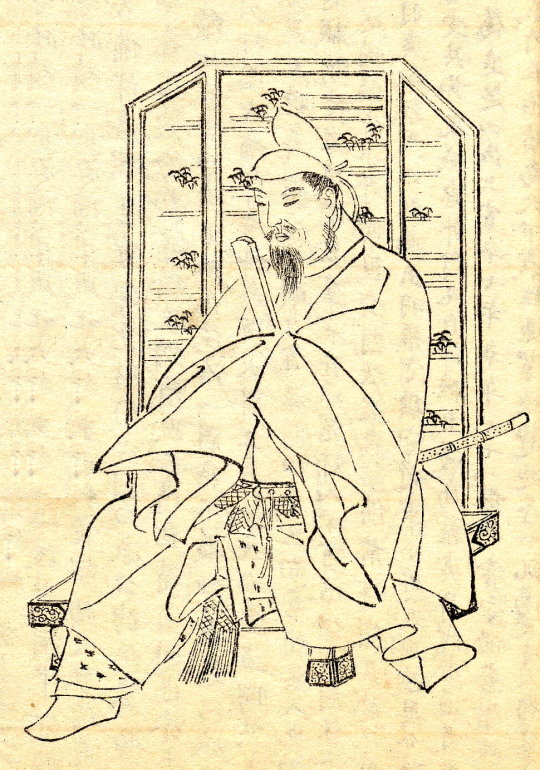
Sugawara no Michizane, Yoshika's apparent nemesis (wikimedia commons)
Alas, Yoshika’s career ultimately did not go entirely according to his whims. The beginning of the end was the day when he acted as the examiner of a new rising star, Sugawa no Michizane. The latter has proven himself to be even more skilled than him, and eventually rose to a higher rank than Yoshika. The latter could not bear this perceived offense against him and one day left his life behind to return to the pursuit of immortality. He aimed at the mountains, hoping to find immortals there to learn their techniques. Masafusa does not provide much detail about his further life, but states that after many journeys he evidently accomplished his goal, as he was purportedly seen alive and well a century after his alleged death.
It’s worth pointing out here that this course of events follows a Taoist motif: becoming disillusioned with one's own career, or with earthly affairs in general, is a common catalyst for search of the Taoist way in literature. A point can actually be made that of all the immortals in the Honchō Shinsenden is the most quintessentially Taoist one (despite not actually being a Taoist), the most direct example of the Chinese model being adapted for a Japanese historical figure, with no addition of the Buddhist components. He even resembles the typical image of a Tang scholar-bureaucrat invested in search for immortality just as much as in amorous adventures. This arguably makes him the perfect basis for a character in a game centered on Taoist immortals in Japan, though truth to be told I feel that in contrast with Seiga and Miko, ZUN’s Yoshika does not live up to her forerunner.
Legends about Miyako no Yoshika in other sources, or the remarkable poetic career of Ibaraki-doji
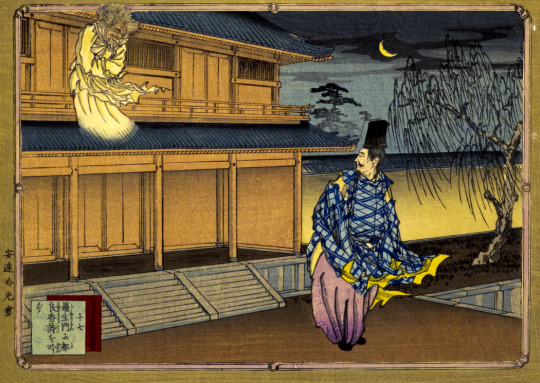
The oni of Rashomon and Miyako no Yoshika, as depicted by Ginko Adachi (Yokohama Art Museum; reproduced here for educational purposes only)
Some of you might wonder where Ibaraki-doji fits into this, considering the pretty direct reference to Yoshika's poetry in Wild and Horned Hermit. Masafusa, as a matter of fact, does allude to one more legend while highlighting Yoshika’s poetic talent, though he doesn’t go into detail. There’s no direct supernatural encounter - a nameless demonic inhabitant of Kyoto’s gate only hears a poem from passersby marveling at it and becomes “deeply moved”, but that’s it. The name Ibaraki-doji doesn’t show up at all, and there’s no mention of the oni finishing the poem, which is a mainstay of later versions.
Another of Masafusa’s works, Gōdansho (江談抄), also doesn’t use the name Ibaraki-dōji, or mention an actual encounter between Yoshika and the oni - he merely hears an unnamed passerby hum the poem and comments on it, calling it touching. However, the Kamakura period collection Jikkinshō already presents the version which gained the most traction in the long run, with the poem being a collaboration between Miyako no Yoshika and an oni. He later recites the full composition to Sugawara no Michizane, who is correctly able to point out only some of it is Yoshika’s own work, while the rest was added by an oni. However, once again, the name Ibaraki-doji is nowhere to be found.
On the other hand, while the story of Ibaraki-doji can be found in Taiheiki and other similar sources, it takes place far away from the capital in these early versions. The location was changed in noh adaptations of the legend to Rashomon, presumably due to its preexisting associations with supernatural creatures. By the time Toriyama Sekien published one if his famous bestiaries, Konjaku Hyakki Shūi, it seems the idea that the oni inhabiting this gate who was encountered by Yoshika and Watanabe no Tsuna’s nemesis Ibaraki-doji, who fought him there, were one and the same was already well established. Note that Sekien’s description of the oni of Rashomon actually doesn’t use the name Ibaraki-doji, though we do know he was aware of it.
It’s worth noting that the oni of Rashomon seemingly had a broader interest in fine arts, since there is also a legend in which he meets the famous biwa player Minamoto no Hiromasa and shows him his own skills with this instrument. However, this is ultimately not directly relevant to Yoshika, so you will have to wait until the next article, which will cover Shuten-doji and Ibaraki-doji in detail, to learn more.

The oni of Rashomon, as depicted by Toriyama Sekien (wikimedia commons)
Bibliography
Bernard Faure, From Bodhidharma to Daruma : The Hidden Life of a Zen Patriarch
Xiaofei Kang, The Cult of the Fox: Power, Gender, and Popular Religion in Late Imperial and Modern China
Zornica Kirkova, Roaming into the Beyond: Representations of Xian Immortality in Early Medieval Chinese Verse
Christoph Kleine & Livia Kohn, Daoist Immortality and Buddhist Holiness: A Study and Translation of the Honchō shinsen-den
Michelle Osterfeld Li, Ambiguous Bodies. Reading the Grotesque in Japanese Setsuwa Tales
Masato Mori, "Konjaku Monogatari-shū": Supernatural Creatures and Order
Masuo Shin'ichirō, Daoism in Japan (published in Brill’s Daoism Handbook)
Leslie Wallace, Betwixt and Between: Depictions of Immortals in Eastern Han Dynasty Tomb Reliefs
287 notes
·
View notes
Note
I've been understanding a lot of cultural subtext around MDZS thanks to you. I'd like to ask more about what makes "cultivation partners." Is it synonymous to marriage or is it a different thing altogether? From my understanding of various marriages depicted in MDZS, marriage can easily be a power move, right. I've also read about dual cultivation, but not sufficiently, and I wish to understand if becoming cultivation partners, sex, marriage - all are supposed to be exclusive stuff. like Jin Guangsham was married yet had sexual relations with plenty of people, perhaps including cultivators? JFM and Madam Yu had a complicated marriage; were they cultivation partners as well? Mianmian married a non cultivator (?) but still went on night hunts to cultivate her core. Other marriages were Qin Su and JGY, and JZX and JYL - so, I do wonder if all of these were classified as cultivation partners.
Another thing I do wonder is, from where I am, in olden times in certain dynasties it was acceptable to have many wives or spouses or marry for gains. In others, the emperor had one true wife who would repeat 7 lifetimes with him and the others were on a lower social level - ploys for expansion etc. I wonder how monogamy etc plays out in chinese context around mdzs time frame, as well as what sort of "expectations" marriage should entail?
><
Woo… that’s a fair bit. Okay. I’m going to try to answer what I can. Let’s take this one thing at a time.
1. The O.G meaning of cultivation partner:
Cultivation partner = Daolǚ (道侣)
From a lingual view, dao is path, truth, knowledge, and faith. Lǚ is a companion who shares your food, your bed, and your path. So Daolǚ = one who walks the same path in pursuit of truth, faith, and knowledge as you.
From a Daoist view, Daolǚ is a couple who cultivate together, who seek the same truth together, and who share life and death together. They don’t necessarily have to be husband and wife or lovers. They can also be family members, parent and child, or shifu and dizi. They can be of different sexes or the same sex. All of those are only accessories to the OG meaning.
The core of Daolǚ is “ones who seek the same truth.”
This video is from a master Taoist answering the question, “Are Dao couples husbands and wives?”
http://baike.baidu.com/l/nBoL850d
2. So why did MDZS use Daolǚ when talking about married couples? AKA a stealth reference to a real-life historical split in opinions:
The first time the topic of Daolǚ comes up in the novel is during the Cloud Recess era when Lan Qiren taught the history of the Lan ancestor, how Lan An met his Daolǚ, and together they created House Lan. Then the students started discussing their future Daolǚ, which eventually led to the fight with Jin Zixuan.
Daolǚ, in this context, definitely sounds like a different word for a married couple in the setting. Why?
Well…. Because there is a historical split in opinions regarding what Daolǚ really is in practice.
Of course, if we are only talking in theory and lingual origin, then the married or sexual aspect just doesn’t come into play. But in real practice, this kind of close proximity inevitably ends up becoming (or is born out of) actual physical, emotional, and sexual intimacy.
Think about it. The one who shares your faith. The one who shares your path. The one who holds the same ideal. The one who shares your food, your life, your bed. The one whose life and death are intertwined with yours. The one who will walk with you to the very end, wherever it may be. The one whose soul is literally linked to yours through shared cultivation.
You don’t really get this kind of exclusive, super intense, intimate relationship from anywhere other than a married couple. Of course, there are exceptions, but they are, by and large, exceptions that prove the rule.
It’s very funny because even in the official Baidu entry for Daolǚ, beneath the super official definition provided by Daoism associations and sourced from some of the most credible historical texts that survive to this day, even they had to admit in the modern understanding, and especially in media portrayal, Daolǚ is used almost exclusively to refer to Daoist couples in every way that a regular couple can be. Even funnier, if you go and search for the term 道侣双修 (Daolǚ dual cultivate) in the book section, it turns up some 4300 titles concerning Daolǚ dual cultivation. And a very significant portion of those 4300 titles aren’t actually entertainment media at all, but actual historical texts, modern research, and serious treatises written by reputable modern Daoists on the subject.
Okay. So then, why not just admit that outright? Why the extra step? What’s there to disagree about?
Well, because sex is icky.
Hahahaha! But no really…
3. Dual Cultivation aka Magic Sex:
And here we are at the crux of the historical split of opinions.
Dual Cultivation aka Magic Sex (eyebrow waggle!).

From Daoism's founding point, the idea of harmony between Yin and Yang has been one of the founding precepts laid by Laozi himself. There’s not a single reputable Daoist school that disagrees with this precept. The disagreement comes from the interpretation of this precept instead.
From very early on, there were already schools that believed in the application of Yin Yang harmony to manifest as the physical and spiritual relation between men and women (or Yang bodies and Yin bodies).
How early are we talking? Well, BCE kind of early. The earliest text that teaches sex art as part of Daoism is a pre-Qin-dynasty book named The Dao of Huangchi 黃赤之道. This text was later religiousized by various schools of Daoism.
Before the 10th century, there was not much disagreement at all among ancient Daoists about the sex part.
Sexually explicit dual cultivation only became an issue sometime around the Tang dynasty forward (618 - 906 CE). Why the Tang dynasty? Well, that’s around the time Daoism became bourgeois. Before Tang, Daoism was the religion of anti-authoritarian hippies (for lack of a better word). Yep, they were very screw-the-government, let-me-have-my-weed-and-intense-sexercise-while-high kind of people (I’m not even kidding).
One of the earlier records of Daolǚ dual cultivation after the bourgeois-ification of Daoism that still survives to this day is Wu Zhen Pian by Zhang Boduan from the 10th century. Around this same era, numerous sects and schools adopting the same practice of Daolǚ dual cultivation (sexually explicit at that) sprouted up, such as: Shuangxiu Sect, Fangzhong School, etc…
The Wu Zhen Pian, despite being a fairly cryptid text, also explicitly referred to the “places where the body is first given qi” as the male and female genitalia. So there really isn’t any room for misinterpretation as to what exactly it was speaking of.
Around this same era, the disagreement around dual cultivation being sexually explicit and Daolǚ being 99.99% couples became very intense… as in sect war kind of intense.
Ancient High Chinese society was, by and large, very “performatively” puritanical. So from the time Daoism started rubbing shoulders with kings and rulers (instead of eschewing them as the literal founders of Daoism taught), they also started eschewing their fairly sexual, anarchist roots.
Ergo… the ideological schism.
This schism would split between diehard, purists practicing Daoists from the more neutral ones that used Daoism as a political tool as well.
4. A history of sexual exploitation:
Okay, so sexy Daoism is the pure, root Daoism. Why isn’t it the one being preached as official these days?
Because… as usual, whenever there’s a great idea, some chuckleheads somewhere would come along, bend it around its knees, and abuse it instead.
Think about it for a moment. Daoist sects in ancient times were steeped in mysticism. Many of them were powerful and rich. You throw in the sex element. It’s extremely easy for exploitation to happen.
Cults are some of the oldest things in the history of mankind. Sex cults aren’t new, and they aren’t rare, either. Charles Mansion of the Mansion family is just one in a very, very long string of such things.
Let’s just say that for many reasons and many factors, pure Daoist schools practicing sexually explicit dual cultivation also tended to have a checkered history and that along with the historical transformation of Daoism from an anarchist religion to a state-sponsored philosophy massively discredited them.
To this day, you can still trace this history of exploitation down to modern media concepts such as “Human Cauldron,” which is the term denoting a human being used as a sex slave and a cultivation tool by another cultivator. You would think that’s a modern media invention… but no… this term has a long and dark history. Forgive me but I don’t exactly want to go into details in this part.
5. So, what does this all have to do with MDZS?
Well, you can use this context to understand how concepts like dual cultivation and Daolǚ are interpreted and practiced by different people within the MDZS world. MDZS is based in Wei Jin period, which was a period of transition, chaos, and clashing ideologies. You can kinda see that complexity in the way a concept like Daolǚ seems so… mixed and different between theory and practice.
When you really get down to it, there are two ways to understand Daolǚ. 1/ Those who share the same mind, the same faith, the same truth. And 2/ Those who are boinking magically.
Do Wangxian meet these requirements? Yep, both of them. I think that’s pretty clear. Near the end of the story, when Wei Wuxian said his goodbye to Wen Ning and Lan Sizhui, he also remarked about everyone having their own “road” to walk and that, in the end, only one person walked the same “road” as him. That person, Lan Zhan, was also the one person he wanted to walk with. (I don’t have to provide a snap for this, right? People aren’t going to shoot out of nowhere and accuse me of not providing adequate citations, right?). Dao is road. So that’s another nod to the fact that Wangxian are Daolǚ in every interpretation of the concepts (And yes, I’m totally into the interpretation that their boinking is, in fact, magical and working to stabilize Wei Wuxian’s cultivation! Look at the Japanese art featuring Wei Wuxian with the blue cloud patterns on his body! Clearly, lots of people agree with this interpretation! You can’t convince me otherwise!).
What about Jiang Yanli and Jin Zixuan? Are they Daolǚ? Ehh… it’s kind of a toss-up, isn’t it? There’s not really much in any permutations of MDZS (with maybe the exception of the live-action) that either supports or disprove. I think if you want to interpret them as Daolǚ and Jin Zixuan would eventually help Jiang Yanli cultivate a Jindan and be able to stay young alongside him, you definitely can do that. Or if you want to see them as a more traditional, ordinary husband and wife couple, then that’s a valid interpretation too.
Jin Furen and Jin Guangshan? Ehhh… the above paragraph applies… although… geee… I really don’t see them as either pursuing the same truth or… exclusively boinking magically or that either is using the other as a human cauldron… although that doesn’t disqualify Jin Guangshan himself from using that for his sexual escapade? But then why would he die to marathon sex? I guess Jin Guangyao is hax enough?
In any case, I’m going to stop here. I’ve been sick for the past three weeks and my work has been really demanding. I really tried hard to reserve some free time to write. So the things I have not answered, can you come back to me another time and I will, when I find the time and full citation materials, write a separate reply?
Have a great day!
Oh, also… just as a disclaimer, please don’t use my writing for fandom strife or anything like that. I only very recently found out there were people using my writing for… well… Let’s just say I’m not for that. If anything, please use my writing for creative purposes or just to learn something new!
268 notes
·
View notes
Text
One nerd's musing about Chinese religion and "respect"
-I try to stay away from fandom discourse, but, much like how you can smell the stench from a dumpster fire without walking into said dumpster fire, I've noticed something that seemed to come up a lot in western JTTW + adjacent fandoms: "respect Chinese religion".
-Usually as a reason for why you shouldn't ship a character, because of fucking course it's shipping discourse too.
-And my first reaction is "Man, you are taking Chinese religion too darn seriously, more than people who are born and raised in China."
-My second reaction is "I mean, most of us are atheist/agnostic by default anyways, with a good number of what I'd call 'atheist/agnostics with superstitions': people who said they were not religious, yet believed in Fengshui or divinations and burnt incense at temples for good luck."
-My third reaction: "But why do I get the feeling that when you mention 'Respect', you are thinking about something completely different?"
-Then I reread an essay from Anthony C. Yu, "Religion and Literature in China: The "Obscure Way" of Journey to the West", and the metaphorical lightbulb just lit up over my head.
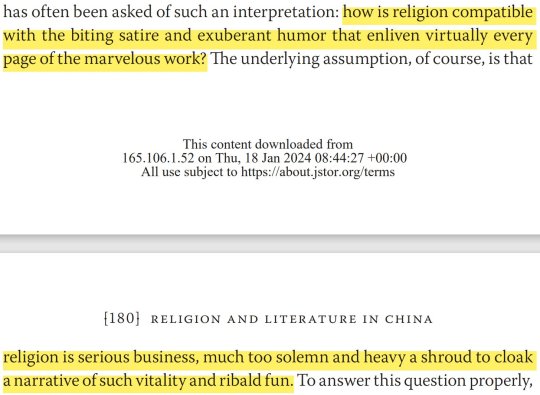

(Everything below applies more to Daoism + associated folk religions, but by the time when most classic Chinese vernacular novels were written, the blending of the three religions had become well and truly mainstream.)
(The conception of gods differs from dynasty to dynasty. What I'm describing here is mostly based on Ming and Qing ones; if you went back to Han or pre-Qin times, most of these would not apply.)
(I am one of the "atheist/agnostic by default" people. I just have an interest in this kind of stuff. I am also just one Chinese person, and an actual Daoist/Buddhist/Religion Studies researcher would probably have a lot more valuable information and perspective to offer when it comes to contemporary practices and worship. Like any people on the internet: take my words with a grain of salt.)
-Even in the past, when society was far less secularized, Chinese gods are not omniscient, perfect beings whose worship is a solemn, humorless affair. Some's worship are Serious Business, but that has more to do with the sort of gods they are and the patronage they enjoy, not godhood in and of itself.
-And even the ones that you are supposed to "treat seriously" are still very human. To use an analogy I've used plenty of times before: you respect and fear them in the same way you'd respect and fear an emperor's official, or the emperor himself, because if you don't, you are not gonna like the consequences.
-However, unlike Jesus, the emperor & his officials were capable of being temperamental, flawed, or an outright asshole, divine or not. Ideally, they wouldn't be, and if you were one of the "serious" believers——people who actually got an official permit, became ordained clergy, and went to live in a temple, you were unlikely to think of your gods in that manner.
-But it wasn't a complete, utter impossibility. The lower you go in the pantheon, the closer you get to popular religion, the less "serious" the gods and their worship become. By that, I mean general attitude, not sincerity of faith. You still shouldn't be rude to them, but, well, they are more likely to take a joke in stride, or participate in the "vulgar" pleasures of commoners because they weren't as bound to Confucian moral standards or religious disciplines.
-To stretch the same analogy further: you should still respect your village head, they could still give your ass a good spanking for being a disrespectful brat, but you were not obligated to get on your knees and kowtow to them like you would do in front of a provincial magistrate, the emperor's minister, or the emperor himself, nor did they have the power to chop your head off just because you were rude.
-On the other hand, the emperor would never visit a random peasant just to help them fix their broken plow or treat them to a nice meal, but your village head could, and your relationship would probably be warmer and a lot more personal as a result.
-Your respect for them was more likely to stem from the things they actually did for you and the village as a whole, instead of something owed to this distant, powerful authority you might never get to see in your lifetime, but could change its course with a single stroke of a brush.
-Now exchange "village head" for your run-of-the-mill Tudis and Chenghuangs and friendly neighborhood spirits (because yes, people worshipped yaoguais for the exact same reasons), emperor + his officials for the Celestial Bureaucracy, and you'd have a basic idea of how Chinese religions worked on the ground level.
-This is far from absolute: maybe your village head was a spiteful old bastard who loved bullying his juniors, maybe your regional magistrate was an honest, upright man who could enjoy a good drink and a good laugh, maybe the emperor was a lenient one and wouldn't chop your head off for petty offenses. But their general degree of power over you and the closeness of your relationships still apply.
-Complicating the matter further, some folk gods (like Wutong) were worshipped not because they brought blessings, but because they were the divine equivalent of gangsters running a protection racket: you basically bribed them with offerings so they'd leave you alone and not wreck your shit. Famous people who died violently and were posthumously deified often fell into this category——shockingly enough, Guan Yu used to be one such god!
-Yeah, kinda like how your average guy could become an official through the imperial examinations, so could humans become gods through posthumous worship, or cultivate themselves into immortals and Enlightened beings.
-Some immortals aren't qualified for, or interested in a position in the Celestial Bureaucracy——they are the equivalent of your hermits, your cloistered Daoist priests, your common literati who kept trying and failing the exams. But some do get a job offer and gladly take it.
-Anyways, back to my original point: that's why it's so absurd when people pull the "Respect Chinese Religion1!!1!" card and immediately follow up with "Would you do X to Jesus?"
-Um, there are a lot of things you can do with Chinese gods that I'm pretty sure you can't do with Jesus. Like worshipping him side by side with Buddha and Confucius (Lao Tzu). Or inviting him to possess you and drink copious amount of alcohol (Tang-ki mediums in SEA). Or genderbend him into a woman over the course of several centuries because folks just like that version of Jesus better (Guan Yin/Avalokitesvara).
-But most importantly, Chinese religions are kinda a "free market" where you could pick and choose between gods, based on their vicinity to you and how efficient they were at answering prayers. You respect them because they'll help you out, you aren't an asshole and know your manners, and pissing them off is a bad idea in general, not because they are some omnipotent, perfect beings who demand exclusive and total reverence.
-A lot of the worship was also, well, very "practical" and almost transactional in nature: leave offerings to Great Immortal Hu, and he doesn't steal your imperial seal while you aren't looking. Perform the rites right and meditate on a Thunder General's visage, and you can temporarily channel said deity's power. Get this talisman for your kids at Bixia Yuanjun's temple, and they'll be protected from smallpox.
-"Faith alone" or "Scripture alone" is seldom the reason people worship popular deities. Even the obsession with afterlife wasn't about the eternal destination of your soul, and more about reducing the potential duration of the prison sentence for you and your loved ones so you can move on faster and reincarnate into a better life.
-Also, there isn't a single "canon" of scriptures. Many popular gods don't show up in Daoist literature until much later. Daoist scriptures often came up with their own gigantic pantheons, full of gods no one had heard of prior to said book, or enjoyed no worship in temples whatsoever.
-In the same way famous dead people could become gods via worship, famous fictional characters could, too, become gods of folk religion——FSYY's pantheon was very influential on popular worship, but that doesn't mean you should take the novels as actual scriptures.
-Like, God-Demon novels are to orthodox Daoism/Buddhism what the Divine Comedy is to medieval Christian doctrines, except no priests had actually built a Church of Saint Beatrice, while Daoists did put FSYY characters into their temples. By their very nature, the worship that stemmed from these books is not on the same level of "seriousness" as, say, the Tiantai school of Buddhism and their veneration of the Lotus Sutra.
-At the risk of being guilty of the same insertion of Abrahamic religion where it doesn't belong: You don't cite Dante's Inferno in a theological debate, nor would any self-respecting pastor preach it to churchgoers on a Sunday.
-Similarly, you don't use JTTW or FSYY as your sole evidence for why something is "disrespectful to Chinese religion/tradition" when many practitioners of said religions won't treat them as anything more than fantasy novels.
-In fact, let's use Tripitaka as an example. The historical Xuanzang was an extraordinarily talented, faithful, and determined monk. In JTTW, he was a caricature of a Confucian scholar in a Buddhist kasaya and served the same narrative function as Princess Peach in a Mario game.
-Does the presence of satire alone make JTTW anti-Buddhist, or its religious allegories less poignant? I'd say no. Should you take it as seriously as actual Buddhist sutras, when the book didn't even take itself 100% seriously? Also no.
-To expand further on the idea of "seriousness": even outside of vernacular novels, practitioners are not beholden to a universal set of strict religious laws and taboos.
-Both Daoism and Buddhism had what we called "cloistered" and "non-cloistered" adherents; only the former needed to follow their religious laws and (usually) took a vow of celibacy.
-Certain paths of Daoist cultivation allow for alcohol and sexual activities (thanks @ruibaozha for the info), and some immortals, like Lv Dongbin, had a well-established "playboy" reputation in folklore.
-Though it was rarer for Buddhism and very misunderstood, esoteric variants of it did utilize sexual imageries and sex. And, again, most of the above would not apply if you weren't among the cloistered and ordained clergy.
-Furthermore, not even the worship of gods is mandatory! You could just be a Daoist who was really into internal alchemy, cultivating your body and mind in order to prolong your lifespan and, ideally, attain immortality.
-This idea of "respect" as…for a lack of better words, No Fun & R18 Stuff Allowed, you must treat all divinity with fearful reverence and put yourself completely at their mercy, is NOT the norm in Chinese religious traditions.
-There are different degrees and types of respect, and not every god is supposed to be treated like the Supreme Heavenly Emperor himself during an imperial ceremony; the gods are capable of cracking a joke, and so are we!
TL;DR: Religions are complicated, and you aren't respecting Chinese religions by acting like a stereotypical Puritan over popular Chinese deities and their fictional portrayals.
#chinese religion#chinese mythology#chinese folklore#fandom discourse#journey to the west#xiyouji#investiture of the gods#fengshen yanyi
34 notes
·
View notes
Text
A Garden Without Impurity
A Homelander x GN Reader fic one-shot

A/N: Should be working on my other fics but i needed to get this out me system, inspired by a conversation I had in this site and watching the apothecary diaries, not an expert on chinese harem systems but i based this sort of on the Qin Dynasty system bcuz it was like the simpliest, like those emperors got around a lot… this is more drabble than fic-fic but i hope y’all enjoy.
Tags: light smut, 3-some, bilander, dark topics, not proofread I die here, non-canon complaint/canon-divergent, takes place in who knows, traditional polygamy, no dialogue here btw, Homelander being himself, light gore.
Word Count: 5K
Synopsis: You’re a member of Homelander harem, this is but a documentation of that.
Homelander was always a lonely man perpetually hunting after love, for anybody who could give him attention, who would want him. He clung easily to lovers, too young at first to notice how easily he could be tricked into becoming nothing but a trophy fuck, too inmature to notice how his behaviour frightened them in the long run, and the more and more he was hurt the worse he became, all he’d learned was how to hide his anguish– turning him dangerously bitter.
Lovers came easy but just as easily they left– either scared straight by an army of lawyers, handsomely compensated or increasingly more often in pine boxes… crisis management meetings became so commonplace they began to be run on emails.
He was a man desperate for love– so much love to give but nobody could ever give him an ounce of what he needed, an ounce of what he gave, he was hungry for intimate devotion and adoration, the public could only give him bites sizes but it was fading and quick, and his mind steadily warping from this unfulfilled primal need.
Lovers couldn’t handle how pushy he became, how possessive and controlling he could become, how he wished to monopolize everything– so it was a problem, his sickly nature only wisthand by those contractually obligated to tolerate him, Maeve who had been so perfect until the downstairs neighbors logged less and less noise complaints as their passion cool and soured and Madelyn whose allure came in how untouchable she was, how forbidden she was, how much of a special occasion she had to be, and well rumors circulated involving Mr. Edgar but nobody ever dared to discuss it much.
Porn seem to alleviate some issues but the poor team in-charge of monitoring his online usage had filed formal complaint about having to be subjected to so much ‘stepmom porn’ and increasingly bizarre fetishes, whether he watched them to get off or not was unknown but once he switched the porn to browsing r/watchpeopledie– a meeting had to be made and this time it was in person.
It was hard to pin-point the exact moment a suit suggested this solution– it was merely a joke but no matter how thick these walls were it would never be missed by Homelander, who indulge them.
And the project began to take place, with the end goal to provide him with company, and a controlled environment for Vought overseeing… a facility where the damage would be limited to seven floors and 30 large and luxurious condos.
Legally this building was just one of the many owned by Vought– like many other megacorps it was no surprise Vought dab in real estate, owning a couple buildings around the city to provide employee accommodation much like their Silicon Valley competition. After selecting the small building that once simply served as their own service apartments to accommodate shareholders, the project began to take place.
Homelander found it amusing, interested as to what things were going… surprised about how much he was looking forward to this, much to his chagrin– Homelander was very much a man and at the thought of being supplied with sex on tap he was quite happy to play along giving it a fair-go for a few weeks then forget about it after the novelty faded.
The first iteration was an utter failure, simply nothing but a duped “Playboy” Mansion, women who were paid to seduce him and become available whenever he desired– they were boring, they weren’t there for him, they were there for the paycheck and presents, for the free rent and the possibility of becoming his favorite perhaps.
It was dull.
Painfully dull, nothing different from what he was doing, only it was kept behind closely guarded doors and managed by the company that micromanaged everything else in his life.
Dull Lovers who barely pretended to care, who rolled their eyes when he wanted to talk about his interest, who looked at their phones during the good scenes of his favorite films, who signed when he wished to be held, who gave no enthusiastic response at anything but Versace and Jimmy Choo’s.
He felt the ever growing emptiness spread further like a cancerous mass.
As he sat alone sinking on his couch flipping channels in the dark and his eyes finally grew heavy for the night– his fingers stopped in some show about a man trying to balance having four wives, the scenario intrigued him… a man married to several women who seemed enamored with him despite all the drama in the background… These women on his screen weren’t like the ones provided… they weren’t his… They didn’t love him nor wanted to devote themselves to him, they were just high paid prostitutes– even the women at the Playboy Mansion he had met seemed to have a better relationship to the old creep than his own had to him– he wasn’t special or interesting to them.
It was transactional and the affection unconvincing, unlike this man’s wives who seemed to care about him, who didn’t look forward to meeting other men or keep in touch with old John’s and sold their feet pics online to just any guy.
Vought or the public would never allow him to have a dozen wives, he wasn’t even a Mormon, officially he was an Evangelical just in name not in practice so he couldn’t simply adopt the church's views nor was he interested in even more rigid rules… I mean he did enjoy a cup of coffee every once in a blue moon and he certainly had a spicy tongue.
It took a lot of trial and error and plenty of lawyers too.
But a single joke turned into this…
You had been there for quite a long time, you seen plenty of pretty faces come and go, most left because they disliked the system in place– had they simply bothered to glance the wikipedia article on Chinese harem practices before signing the dotted line their grievances would have been lessened… altho calling yourself a polygamist might not even been an applicable label– after all his rules made it difficult to do so.
You had simply been a low-level intern when Homelander first laid eyes on you all those years ago.
He watched you for a long time and you watched him with the same intensity, he was a pretty thing, he had a quirky laugh that veer into cackle territory, his hands were as soft as the rest of him and above all you could tell pretty early on that there was a hunger inside him unmatched by anything else.
No lover before had ever made you feel so wanted, he made you feel as if he was born for you, no lover ever devoured you with a single look… it was desperate.
When have you ever felt this desire before? You asked yourself the more intense this became.
You never experience the titillation and the fear that his hunger inspired in you, the way he touched and explored every inch of your skin inside that broom closet made you fear for your life, as if he would feast on you and gnaw at your bones like a dog with a fresh treat, that one spicy rendezvous after office hours quickly became a regular occurrence and he never had enough.
Neither did you.
His gentleness hid praise worthy self-control, he molded his performance after what made you feel best but you would soon learn it was performance– you were puddy in his hands as he trapped you with this pleasure.
To be yearned for was different, he wanted all your free time to be for him, to ignore all the pretty faces and nameless ass that crossed your sight and devote yourself to him, he was honest about wanting you, about wanting you to love him just as much as he could love you.
Made worse by the fact that you had no qualms with the worst of his personality your fights and arguments as unhealthy as anybody else but always over petty things, never about the nights he soaked the carpet with some miscreant chunky remains, after all you had to be a bit loopy and unhinge to look at him as if he was the only source of light in the cave that was your life.
It was a long courtship before he told you about ‘The Gardens’. At first you simply thought it was another luxury building stuck in Manhattan but behind the doorman and reception clerk was a building only inhabited by lovers.
It wasn’t easy to digest– but floor to ceiling windows, private drivers and Hermes boxes demonstrate to your ego that you might have a price… The 6 figure allowance certainly made your stomach drop as you accepted new found facts about yourself… this was not counting any extra presents– after all your job would be to stay pretty and interesting for him.
You certainly had your suspicions but you had been quite enamored with the Supe, unable to look away from those cornflower blues and the sad expression painting his face as he began to suspect your rejection, the palpable anguish he was trying so hard to contain. Accepting simply to do a few excessive sessions of retail therapy on his dime to recover from the shock, coming in thinking he will grow bored of you soon enough and you could commence the healing process afterwards.
But you never left ‘The Gardens’, the people who ran the building would refer to you as the Noble Consort with the Empress or Imperial Noble Consort reserved for whoever Homelander was dating for the papers (altho you would have given the title of Stillwell for the longest time), to your disbelief you found enjoyment in this arrangement, your were free to pursue whatever you wanted for money was now not a problem– all those hobbies you had abandoned, halted and wished to explore were now back on the table, a new career change or education now a possibility, even pursuing a lifelong passion or dream was available, as long as you kept pretty and keep his favor.
There were other rules of course… Nobody besides Homelander could be in your life. Sex-work was out of the question once somebody took residency in one of the handful of luxury condos. Not involving oneself romantically with any of the other concubines or anybody was also a major rule. He demanded a vow of secrecy as well obviously– telling anybody about the arrangement specially online or the media, and you would have a head on your front door… you would have prefered a finger, a tooth or a kidney like the others on your floor but he left the brainless severed head on yours.
You were certain that Vought kept a dystopian level of watch over your digital footprint while you no longer worked with Vought and did your thing… you heard the rumor of a shadow department whose whole job was to watch this place– it wasn’t really out of the realm of possibility after all Homelander was worth billions to them… and if not Homelander was there watching somehow.
Which is how you end up with having to call somebody to pick up and puzzle the old concubine back together.
He was The Emperor and thus you had to act like a noble, anybody caught breaking his rules would be in more than a little trouble– Homelander was quite cruel once a lover lost his fancy.
But not as cruel as the other residents when they sensed somebody trying to plant the seeds of discourse, threats to the system were ever present whenever he brought a new concubine, those who survived the longer kept the peace.
A mixture of jealousy and self-preservation feed the cruelty… after all these years you liked your comfortable life and so did the others– those with more expensive taste to your own, those whose families were partially supported by Homelander (if he was aware or not was not yours or his problem) those who loved him and didn’t wish to part, and those who needed his support to make sure even if he grew bored with them they had a back-up to their back-up, none who would risk losing it all just because some new lover wanted him all for himself– they had no grace about it and would soon realize that tribalistic nature of humans… unless somebody whispered sweetly in John’s ear and prevented the carnage.
Unsure as to why anybody would want to monopolize him as if this entire building wasn’t a red flag about how pointless that was, you discussed with the others.
He was more than an armful, he was too much even for you who obsessed so easily with him, who demanded his attention and affection but ultimately unable to match just how much he needed in return, you stopped disliking this new life because Homelander would never be satiated, because he would wear you down to a stub, because he would scare you away if you didn’t find a way to get breathing room, more for his sake than your own. You loved him, you wanted to hold tight but if he kept going you would let go of his hand mid-flight and the thought of hating him or falling out of love with him filled you with dread.
You needed him on a cellular level, you joked in the past as you talked to a neighbor, who understood you as he laughed.
It stung for a long time to live this way– You just made it look easy.
But you made it, and it earned you some perks.
You checked your agenda to make sure that time had come around, you weren’t called the Noble Consort for nothing– he would reserve you even outside your birthday week.
8.3 million people in this city and he could make sure you felt like the only one in this town.
Perpetually charming you thought as he landed inthe balcony with your favorite chocolate and flowers.
If Homelander had to explain why he kept you the longest it was how you talked to him earnestly, you treated him as if he was not just a celeb but a husband, how happy you always were too see him, how you always clung to his shoulders even before his boots touched the ground and how quickly you always dragged him inside worried he would get sick from the cold winds, even if he went weeks without seeing you in person you never let him see it, it was as if no matter how long it had pass you couldn’t care less, only the now you experienced together mattered.
He wondered if this was how sailors felt when they came back home after a lengthy tour, if it was warm like this.
No matter how long this had been going on for– your love was genuine, he even thought of you as a weekend masochist for putting up with his whims, but you took him as he was and that was something special… something worth keeping… worth protecting.
He could snuggle in your chest all he wanted, he knew your fingers would scratch his scalp without command, he would find your warmth either gifted by your words or your core.
A perfect spouse to him, he would whisper to himself when you slept or when he missed you, in this intimacy he knew he would stay with you, the only one who understood what this place was all about, who was this emperor’s favorite.
Now when it came to sex–the life of his concubine wasn’t sexless… you doubted the man actually lived in his actual penthouse all the way up in Vought Tower, he might use it to change suits or pick up his mail, for he would share somebody else’s bed every night, if he didn’t you would find out at the lobby, perks of knowing everybody in the building was that rumors traveled quickly and plans of actions would be organized in elevators… so your bed was not infrequent and during your weeks he would always sleep there.
You keep a spare pair of his boots and gloves that didn’t came with the apartment, which said a lot about how infrequently did he slept at his legal address and your longevity in this palace– what did came was a toothbrush, comb, some of his skincare products and extra-creamy milk restocked frequently more so these days.
These private weeks were both sugary and bitter, date nights and cuddling lazily on the couch as he spoke of his day and listened to yours, you spoke a lot catching up with lost time while he washed your back and you washed his hair, knowing he would leave soon enough and return to some girl back in the tower or go downstairs.
And as your week ended he would treat you to something adventurous.
You kissed him in the upper courtyard by the warm dim lights surrounded by whistling shrubs, the night was starting to grow cold, draping his cape around you for your comfort, he moaned as your lips suckled on his neck savoring the feel of your tongue as you drew lines on chin, slowly melting on your sweltering heat, your hand taking his thigh with a firm squeeze teasing him as they came close to his member, kissing until lips bruised and blood inked his tongue, you kissed until his jaw started to numb and his cock leaked with anticipation, being uphere where somebody might see always excited him, he had already baptized every bench in this courtyard but it didn’t lose his splendor just yet.
His hips buckle as your hand finally gave him much needed affection, hearing your muscles push as hard as they could against him, mewling as you chuckled with delight at his reactions, his eyes so hazy.
Trembling as your hand left him, you pulled at his belt watching him blush as he remembered that the one thing you lacked was super strength, you leaned back as he swiftly began to lower his tights, throwing his belt to the ground so the cold steel wouldn’t make you shudder.
His cock was hard, crying rivers into the cold wind until your lips kissed it better.
He made no attempt to conceal his moaning, growling as your teeth grazed the sensitive head, he was unapologetically loud, this was the one place where he forgo all his acting lessons, nor did you want him to be quiet it made you excited to hear him moan, he just sounded so needy– cute too… and tonite he was obscenely loud, animalistic even, grunting and growling as your drooled unto your chin and made his thigh slippery, as you took his cock down to the base, licking down his taint, he lifted his legs adjusting his position to follow your tongue, whining and panting as you pleasured him, aggressively pumping at his cock as you suck gently on his balls.
You look up from half-lid eyes drowning on your own pleasure, he came with ease coating your throat with his thick salty cum but just as quickly as he came he would come back up and just as hard as a minute ago– you made it into a game to see how many times you could make him cum before he begged you to let him do it inside you for that was the only way to kill his battery. Pumping his shaft with short and quick pump focusing on the mid-length as to deprive his crying tip taking sadistic delight in knowing that he wanted you to touch the tip immediately but being too far gone to asks for it clearly as he mumbled incoherently behind his breathy wanton, his hips following the rhythm of your hands and tongue.
A shaky smile crossed his lips as the consort took pity on him, you chuckled knowing you won an unspoken bet with your downstairs neighbor, pulling their hair out of the way as their head went up and down and lips grazed your fingers.
You climbed up letting your fellow concubine enjoy themselves in this debauchery.
Biting on his ears as you whispered what you wished to do with him, calling him by his name with a sweetness that tingled something scary inside him.
Homelander laughed weakly against you, his hand pulling on the other’s hair gently, he spouts his orders, throwing the cushions unto the ground you both give each other giddy looks as the man pulls you down with him with the last bit of composure he had before burying his face with your crotch, one hand kept your hips in place and the other held his other concubine hand, gasping against you as the other took him, you saw red– it was not a competition but you did not want him to only focus on the warm enveloping his cock.
All that filled the air were your choir of moans above his muffled coos and whines as you fucked his mouth, his tongue doing his best to keep up, eyes rolling back as you took fistfuls of his hair pulling harshly distracting him so much that he had begun to run of breath, as he ate everything and swallowed desperately, trying to concentrate on the feeling developing his tongue and lips and the sweet musky scent drowing him, fading with a twsited smile as you fucked him earnestly and harshly, he loved it when he was made into a bitch, he would never say it outloud of course– like many things in this building it went unspoken, but you could tell that all the old residents shared a certain quality to them.
Men and women who provided something everybody was afraid of giving to him before.
You’d seen him cling to men and women who wished to mark him, who told him that he was as much their property as they were his.
That proved their love was not superficial… It was genuine.
Or genuine enough for him.
He moaned and bucked his hips pathetically, yearning to reach the furthest parts of you, filling you, to feel his own cum foaming within you as he fucked you.
Moving you quickly, glad that this time he had thought ahead with these cushions for your knees would be bleeding and burning otherwise– it was all hazy at this point, all you knew was his name, the cold wind hardening your nipples, and the sound of his hips slapping into you as he whimpered with a mixture of desperation and pleasure, he finger fucked your companion, hands fucking his lover just as fast and hard to have the concubine running out of breath begging Homelander to not dare stop, making a mess of themselves on his fingers, coating them as their hole squelched and sucked him right back in, as the man grew pleased with the sight, your hands interlocked squeezing hard as they rode their orgasm to a happy end.
You caught a ruby glimpse reflecting in a metal bench nearby, you gulped knowing you had to think quickly.
Turning your face and arching your back as you begged him to hold you.
Coming loudly letting your knees and elbows give up, letting him push you down with his weight, always surprised how heavy those silly golden eagles are, you couldn’t believe his shoulders weren’t stiff 24/7, with a satisfied chuckle he waits for you both to snuggle with him.
The other urges him to take it into their apartment for it was getting cold and they sure didn’t want to catch a cold.
He half-begrudgingly agreed, wishing deep down to go a few more rounds outside but as he felt your goosebumps he took you both inside urgently.
Your hands never touched after that, Homelander ever so vigilant of both your movements, all you could do was hope the concubine would learn just how stringent and absurd John could be, fearful that anybody would dare hold affections to anybody but him.
You kissed his neck, nuzzling against him as he watched the sleeping concubine coldly, arguing with himself if they had meant to break the rules.
Whispering his name as he squeezed your stomach, soothing his unspoken anxiety he let go of those thoughts.
He returned your affections, easing into him as you fed off his warmth.
You whispered quietly, enjoying each other, easing his worries.
This was a peculiar life but in these quiet moments it was like any other.
In these moments it all felt perfectly normal, the world might never get it entirely and you yourself struggled with it at times but when you woke up to his kisses on your chest as he found a way to turn into the little spoon while the other sneaked to the toilet, you certainly didn’t want to change things.
Not one bit.
#homelander#homelander x reader#the boys fanfic#homelander fanfiction#personal#my fic tag#homelander x you#tempted to write a little series on these but if anybody wants to write about concubines feel free#on my behalf#might come back and re-edit this
33 notes
·
View notes
Note
ok so. i am very slowly reading through 七爷, and i don't understand what jing beiyuan is the prince of. like, i understand he's in charge of a territory in the south, but does he have additional responsibilities? is he very low but still on the list of people eligible to inherit? he clearly feels a great sense of civic responsibility, but i'm afraid i'm missing something.
hmmmmmmmm this is kind of complicated because there's some weirdness around translation of imperial dynastic titles, which then gets even more confusing when you slap the general ahistorical ambiguity of genre onto things
so I think the confusion occurs because of the conflation of "prince" as a title of rank, "prince" as "son of a monarch," and "prince" as "ruler of a territory." Jing Beiyuan's exact title is 南宁王 Nanning wang, which is usually translated as "the prince of Nanning," though I can't remember if 南宁 Nanning is simply his title as prince or an actual location (if it is a location, it seems not to be particularly plot relevant since I have uhhh no memory of it)
the thing about 王 wang as a title is that it got royally upstaged (ayyy) by Mr. 嬴政 Ying Zheng (aka 秦始皇 Qin Shi Huang / the Qin First Emperor) back in the 3rd century BCE. The reason why we call him "the Qin First Emperor" is because the man literally invented his own title, 皇帝 huangdi, which we now translate as emperor. Prior to that, monarchs were called 王 wang / kings, and during the Warring States period, you had location-specific kings: 楚王 Chu wang / "the king of [the state of] Chu," 吴王 Wu wang / "the king of [the state of] Wu," 齐王 Qi wang / "the king of [the state of] Qi," etc etc. And prior to that, you had the Zhou Dynasty, whose rulers all carried the title of 王 wang: 周文王 Zhou Wen Wang / “King Wen of Zhou” or “the Civil King of Zhou” and 周武王 Zhou Wu Wang / “King Wu of Zhou” or “the Martial King of Zhou” depending on how you translate them, etc. Qinshihuang, in order to declare his dominance in conquering the Central Plains, decided to one-up all of these petty kings by making up a new title for himself that was automatically higher than the rest of the 王 wang, rather than competing for an existing title
the ripple effect from Qinshihuang raising the ceiling on titles/positions in governance meant that everyone could effectively move up one tier. if, in the past, the ruler was called 王 wang and his son 王子 wangzi (literally "son of the king" but often translated as "prince"), then the creation of the new 皇帝 huangdi / "emperor" title meant that the emperor's sons were referred to as either 皇子 huangzi / "son of the emperor" or 王 wang (the distinction between the two is usually one of age). basically, 王 wang goes from meaning "king" to "position just below the emperor in rank." that being said, it looks like the general decision has been to translate 王 wang as “prince” in the imperial context rather than “king,” possibly because in English, we’re used to thinking of princes as inheritors in the same way imperial 王 wang are eligible for inheriting the dragon throne
notably, rulers of other states/countries/civilizations were all referred to as 王 wang, since imperial Chinese cosmology dictated that the emperor ruled all under heaven (ah, imperial hegemony...). there are also tiers of 王 wang, as in 亲王 qin wang and 郡王 jun wang, but let's not get into that now
so! back to Jing Beiyuan. this gets fun because he’s what’s called an 异姓王 yixing wang, lit. “a king/prince of a different surname.” that means that his family is not patrilineally connected to the imperial family (thus, having a different surname), but the title of 王 wang was at some point conferred upon his family. this usually occurs when, say, an emperor decides to reward a general with the title of 王 wang because he’s so pleased with his general’s accomplishments. during the conferral, the emperor will usually specify if this is a title that can be inherited forever or downgraded from generation to generation (i.e. from 王 wang to 侯 hou, and downwards until eventually the family returns to normal non-aristocratic status).
these 异姓王 yixing wang have a lot of power and influence, comparable to a son-of-emperor 王 wang, but not quite the same because they are not of the imperial family and therefore not in line for the throne. imperial princesses sometimes marry into these 异姓王 yixing wang families, but that can be a recipe for disaster because it begins to make that bloodline — well, not exactly eligible for the throne, but certainly more eligible than they were previously, and if there is one trait you can trust a dynastic emperor to have, it’s the paranoia about potential coups by powerful relatives (but is it paranoia if it really is true? anyway)
all that is to say — I don’t think Jing Beiyuan is the prince of anything in particular, though as a landed aristocrat I’m sure there are fiefdoms in his name. I can’t remember off the top of my head how his family earned the title of Nanning (or if it’s ever explained in the novel), but if I had to guess, I’d say that some ancestor of his was an accomplished general who had the title of 南宁 Nanning (which has the valence of “to bring peace to the south”) conferred upon him, which has subsequently been passed down through the family until it landed on his unfortunate head
250 notes
·
View notes
Text
Nirvana in Fire Historical Parallels: The Warrior Princess

Hua Mulan/花木兰 is unquestionably the most famous woman warrior of ancient China. But how much of her legend actually happened is of debate, while there were many historical women generals who were more similar to Mu Nihuang in NiF. Here are a few of the most notable, in chronological order:
Fu Hao/妇好 (Hao is her family name; before the Qin Dynasty, family names for women were at the end, reversed from the current name order; Fu means married woman now, but could have referred to priestess then), the earliest woman military leader on record, lived during the Shang Dynasty and died in 1200 BCE. Because her time period predated paper, what we know about her came from oracle bone script and the hundreds of weapons in her tomb, which is a burial rite afforded only to generals. As consort to King Wu Ding/武丁, she led an army of 13,000 to many successful military campaigns against the Shang’s enemies. She was not only a general and high priestess, two of the most important roles in that time era, but also owned her own land, which was extremely unusual for feudal women. After her death, the king made many sacrifices at her tomb in hopes of receiving her spiritual guidance to defeat invading enemies.
Mother Lü/吕母 (name unknown, so she is referred to as a mother of the Lü family) lived during the Western Han Dynasty in Langya Commandery and was the first woman rebel leader in Chinese history. After her son was executed for not punishing peasants who could not pay their taxes, she aided peasants under hard times by giving away her considerable family wealth while plotting revenge on the government. During this time, a consort kin to the Emperor had seized the throne and started his own Xin Dynasty/新朝 (literally New Dynasty), enacting many radical socialist reforms such as land redistribution and abolishing the slave trade. A series of natural disasters and poor implementation of the new policies led to great unrest and suffering among the peasant class. Commoners united around Mother Lü, and three years later, in 17 CE, she amassed thousands of loyal followers and declared herself the leader of the rebellion. They took the city, and she beheaded the county magistrate who had killed her son, sacrificing his head on her son’s tomb. As news of her successful rebellion spread, thousands more joined her even as the government attempted to quash her forces. Though she died from illness a year later, many in her army joined the Chimei Army/赤眉军 (literally red brows), a key force in the eventual downfall of the Xin Dynasty.
The most similar to Nihuang is probably Lady Xian/冼夫人, who lived in the 500s CE and served the Liang (the Liang of NiF is very loosely based on this dynasty), Chen, and Sui Dynasties. She was the daughter of a chieftain of a clan of the Li/俚 people and demonstrated great leadership and political acumen from a young age (women in her family could inherit command). She favored diplomatic solutions over fighting as much as possible and was always loyal to the reign, putting down local rebellions and eliminating corruption. Nihuang’s title of commandery princess/郡主 was also one of her titles, and as thanks for her bringing many minority peoples under unified rule, the Sui emperor gave much of modern-day Hainan to her command, much like Nihuang. She lived to around 90 and was given a posthumous name by the emperor as a sign of great respect. Hundreds of temples in the south were built in her honor, where she was deified and remains worshipped today as the Saintly Mother of Lingnan/岭南圣母.

One of many statues of Lady Xian.
Princess Pingyang/平阳公主 (personal name unknown) was the third daughter of the founding emperor of the Tang Dynasty. Her father was an aristocrat who decided to seize the opportunity during the chaos of the failing Sui Dynasty to raise an army in 617 CE, and she decided to help her father ascend to power. With remarkable leadership and recruitment power, she quickly recruited several Jianghu volunteer armies under her wing. More and more people joined as her reputation spread, such that she had seventy thousand under her command by the end in what was known as the Woman’s Army/娘子军. Her forces registered several victories before rendezvousing with her father’s forces to take Chang’an, which would become the capital of the new dynasty. She was given the title of Princess Pingyang and higher honors than her sisters as a sign of her father’s gratitude for her help in starting his new dynasty.
After the coup of Chang’an, there was nothing in recorded history about her until her funeral. A rite officer had objected to burying her with military honors instead of a princess’s rites, but her father and emperor said she always fought at the vanguard of her army, so there was nothing wrong with full military honors. She is the only woman in recorded Chinese feudal history to be interred by soldiers.
Qin Liangyu/秦良玉 (1574-1648) was born to a civil bureaucrat in the late Ming Dynasty who believed in educating women, and she became skilled at riding, archery, and poetry. She looked up to Lady Xian and Princess Pingyang from a young age, and told her father that she would equal their accomplishments if she had military command (倘使女儿得掌兵柄,应不输平阳公主和冼夫人). She was married to a local county commissioner who often led armies to quash invasions from the neighboring Manchu Jin Dynasty, and he gave her command of part of his army. When he died in prison being falsely accused of wrongdoing, she assumed his role, as their son was still young. She defeated numerous Jin invasions across the country, and the Emperor gave her the title of Marquis in recognition of her actions in defending the homeland. She’s famous for being the only female general recorded alongside men in the official histories of her dynasty.
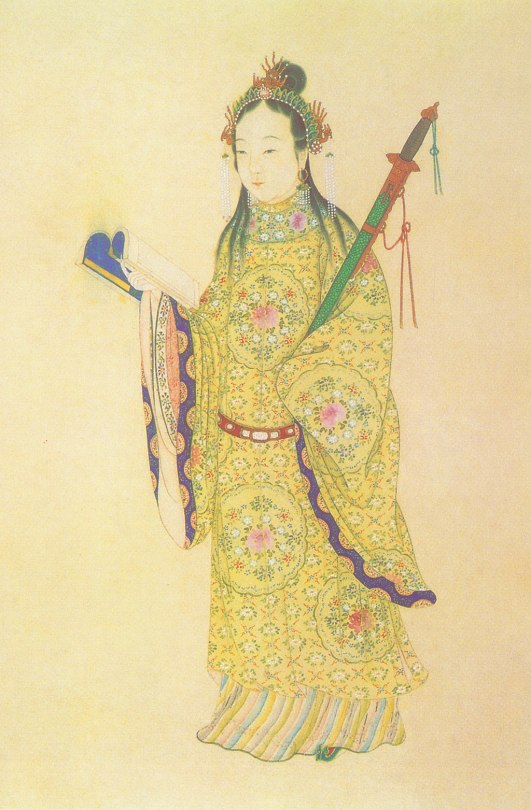
A portrait of Qin Liangyu.
So, what made these women leaders of armies while most women throughout Chinese history couldn’t even dream of such a thing? Fu Hao lived a very long time ago, well before the later Confucian system where wives are supposed to obey their husbands and serve at home. For the others, there are some common factors: growing up in a well-to-do family that educated daughters, demonstrated interest and skill in fighting and leadership, being around military power (true of a vast majority of male generals as well, of course), and some kind of unusual circumstance that gave them power, whether a husband or father allowing them to do so or an environment of unrest that gave them an opportunity.
The warrior princess trope exists for a reason: it’s the highborn daughters and wives of generals who are most likely to get the opportunity to command an army. And their stories are more well-known than, say, women like Chen Shuozhen/陈硕真, who came from destitute upbringings and called herself the emperor while leading a peasant rebellion that eventually failed. All history is biased, and contemporary Chinese history seems to favor those who quashed rebellions and promoted national unity.
Given these historical examples, it’s not so outlandish to imagine that Nihuang was educated by her father in the military arts from a young age, showed great fighting and leadership ability, and was then able to take command when he died during a crisis and while her brother Mu Qing was still too young. She is an exception in a field of men, as these historical women were. And like these women, she was very much still subjected to the expectations and boundaries of feudal women.
In some sense, show Nihuang is an ideal female Confucian role model. She is the perfect daughter and older sister who assumed the family mantle when there are no capable men, doing her duty under a corrupt regime for twelve years, with the implication that she will give up at least some of her responsibilities to Mu Qing when he’s ready. She is the perfect widow who never strayed from her arranged marriage pact. And she is the perfect potential wife who shed all of her commanding aura whenever she interacted with post-identity reveal Mei Changsu—she may question him but she will always listen to him, in the end. Her first scene is of a warrior princess soundly defeating men, and her last big scene is her telling Feiliu she wants to obey her Lin Shu-gege.
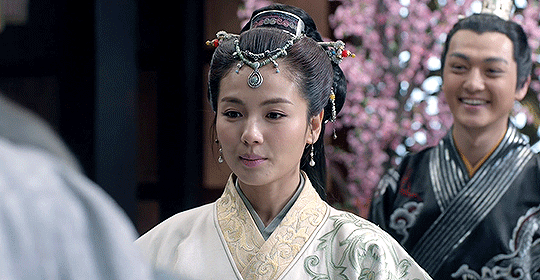
This is a far cry from book Nihuang, who moved on in those twelve years and found someone else to love. To be clear, there is nothing intrinsically wrong with characters displaying period-typical attitudes, and other female characters in canon, like Consort Jing, are compelling without being hidebound by tradition. Within the microcosm of NiF the show, the change to Nihuang’s character may only be due to the creators wanting to increase her screen time in a male-heavy show and add a tragic romance element that they felt the book lacked. But media doesn’t exist in a vacuum, and after some prominent examples of one-sided adaptation changes in recent years—The Rise of Phoenixes taking a book starring a strong female character and dramatically increasing the male character’s screen time for the actor to get top billing, Serenade of Peaceful Joy adapting a book centered around a princess’s futile rebellion against feudal expectations for women into a show about her loving daddy emperor trying to do the best for his daughter by keeping her in line, even Reset giving some of the main female character’s heroic moments in the book to the main male character in the show, to name a few—was Nihuang’s change from book to show a harbinger of the male-dominated Chinese television industry increasingly reshaping strong female characters into what they think women should be like?
This issue of media depictions affects historical women generals, as well. For various reasons, they haven’t gotten their big breaks in modern mainstream media, and the most famous Chinese female warriors remain Mulan and a few other very fictionalized characters who have had popular shows and movies made about their lives. A Qin Liangyu drama was supposed to be filmed a few years ago but never aired, and as typical of this era of Chinese media censorship, no one seems to know what happened to it.
With the lack of extant details for most of these military leaders, one can depict them as either true believers of Confucian values or as women who questioned and struggled against societal conventions. It isn’t hard to guess what’s more likely to be made today, with a slapped-on love story and plenty of screen time for the men to boot. If we can’t give a warrior princess a sword without always making her a dutiful daughter, wife, and patriot, perhaps we shouldn’t be telling her story to begin with.
#mu nihuang#nirvana in fire#琅琊榜#chinese history and culture#long post#a few more women cut for space:#Xiao Yanyan/萧燕燕#Liang Hongyu/梁红玉
343 notes
·
View notes
Text
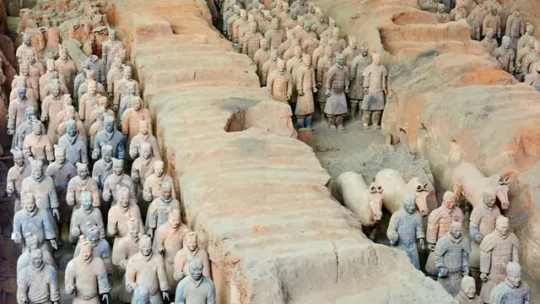
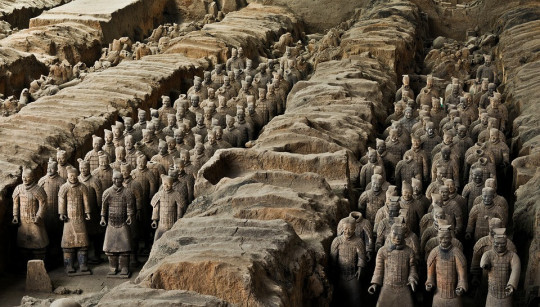
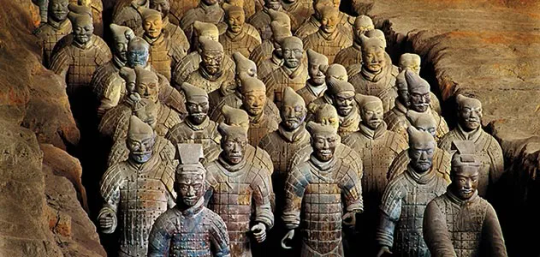
A Rare 2,000-Year-Old Sheep-Drawn Chariot Discovered Near China’s First Emperor
Only the sheep's skeletons remain, but such vehicles appear in Chinese lore.
Archaeologists have discovered the remains of what appears to be an ancient sheep-drawn chariot near the famous "Terracotta Army" in northwestern China.
The English-language website China Daily, which is owned by the Chinese Communist Party, reported that the remains were found in the "western tomb" at the site of Emperor Qin Shi Huang's mausoleum, a few miles northeast of the city of Xi'an in Shaanxi province.
Archaeologist Jiang Wenxiao, who is leading the excavations of the tomb, told China Daily that the main structure of the chariot had rotted away after spending more than 2,000 years in the ground. (The mausoleum dates to the third century B.C.)
But the team did find a row of six sheep skeletons wearing accessories used for pulling a chariot, so they inferred this was a sheep-drawn chariot, Wenxiao said.
Drawn by sheep
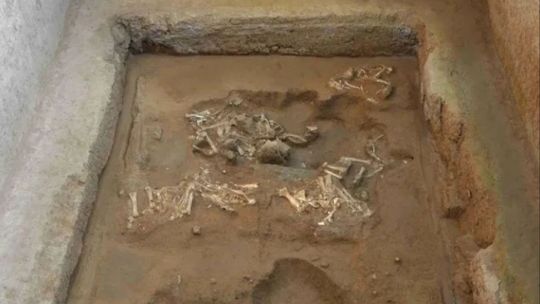
Horse-drawn chariots and ox-drawn carts were common in ancient China, but a sheep-drawn chariot is an extremely rare find, Wenxiao said.
They appear in Chinese history, however, as well as in Chinese lore. The founder of the Western Jin dynasty, Emperor Wu (or Sima Yan), who ruled from A.D. 266 to 290, is said to have ridden in a sheep-drawn carriage around his palace complex every night and would sleep wherever the sheep stopped.
His practice may be the origin of the modern Chinese phrase "seeking luck in a sheep cart"; it's said the emperor had a harem of 10,000 wives, and this seems to have been Sima Yan's method of choosing among them.
Wenxiao presented the discoveries at the Fourth Congress of Chinese Archaeology, which was held in Xi'an in October, according to the state-owned website ECNS.cn.
The team hopes laboratory analysis on the western tomb's burial chamber, which is currently underway, will help them determine who was buried there, the report said.
Chinese chariots
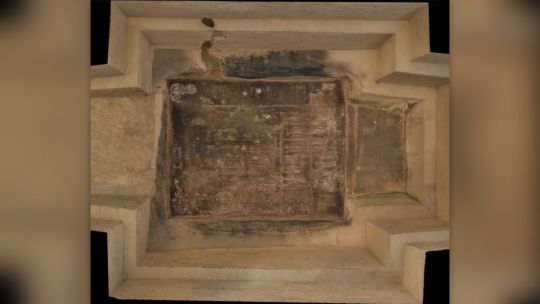
In addition to the six-sheep chariot, archaeologists unearthed a four-wheeled wooden chariot, presumably drawn by horses, equipped with an ornate rectangular umbrella. It is the oldest of its type ever found, according to Wenxiao.
They also found a wealth of copper chariot and horse-related artifacts, as well as iron tools and copper weapons, providing new insight into the period when iron tools first began to appear.
The mausoleum of Emperor Qin Shi Huang, who ruled from 221 to 210 B.C. and is considered the first emperor of a united China, is spread over about 10 square miles (26 square kilometers) and took 38 years to complete. Three immense pits in the mausoleum site hold more than 8,000 life-sized sculptures that depict the emperor's soldiers and their horses — the so-called Terracotta Army.
By Tom Metcalfe.
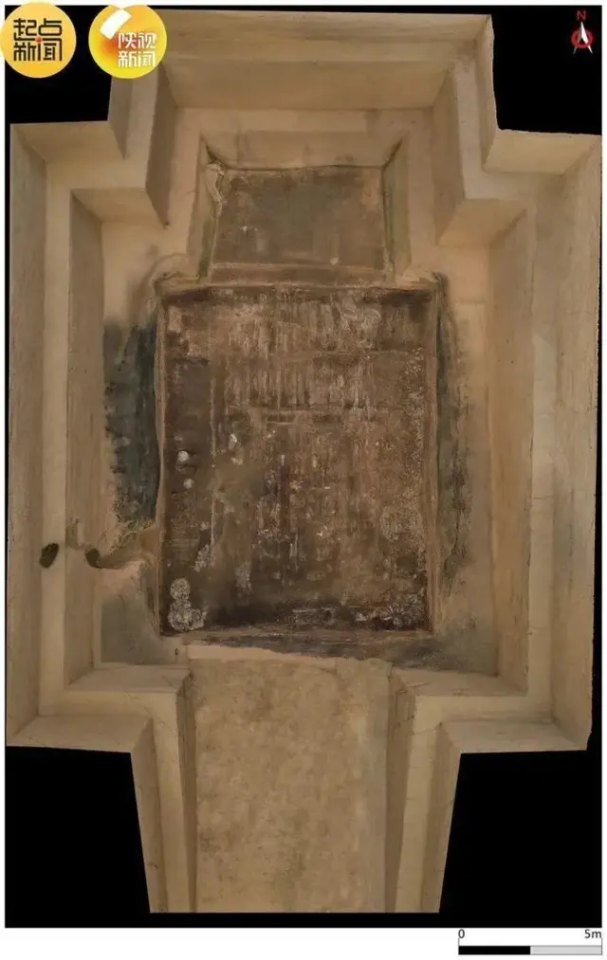


#A Rare 2000-Year-Old Sheep-Drawn Chariot Discovered Near China’s First Emperor#Terracotta Army#Emperor Qin Shi Huang#Qin dynasty#Xi'an Ciina#Shaanxi province#chariot#ancient tomb#ancient grave#ancient artifacts#archeology#archeolgst#history#history news#ancient history#ancient culture#ancient civilizations#ancient china#chinese history
46 notes
·
View notes
Text
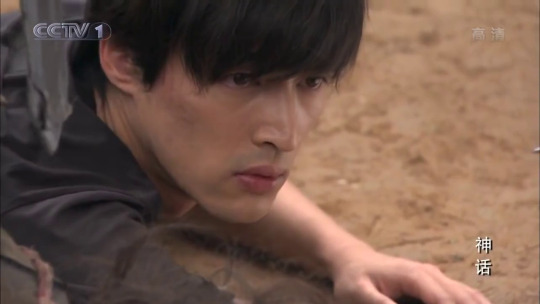



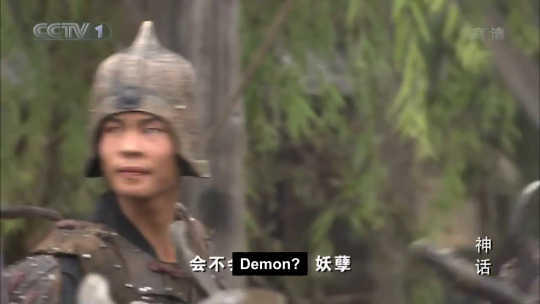





You know, I really really wanted to get emotionally fucked up.
So, here we go, The Myth (2010), the sole drama where I cried so hard I threw up.
Xiao Chuan (Hu Ge) is a modern day freelance photographer who ends in in Qin Dynasty China. Not as a transmigrator or anything, no he is just plopped down in the middle of the execution in progress. From there on, for 50 episodes he proceeds to have his soul, heart and body taken apart. By the time the drama ended, in one of the most horrifyingly bleak endings from anywhere I've ever seen, I was just numb.
The first few eps (until the plague hits, it's this kind of drama), are actually rather funny and can lure the unwary into thinking this will be a fun romp. Or do they? Here we are at ep 1, long before the slide into grinding, inexorable destruction of everything Xiao Chuan holds to except his integrity and we get a giant sign of what this is going to be like if only we paid attention.
He's in the middle of an execution of some enemies, real or imaginary, of the Qin Dynasty, and the befuddled officials not only immediately jump to the conclusion he's there to interfere, a bad guy etc etc, but they breathe past the questions of how he got there and who he is (and even what he is), to "we should execute him, whoever he is, because we get paid more for each supposed traitor." I mean, think about it - they wonder if he's a god or demon and then decide it doesn't matter, they will just add him to the kill tally for prizes. This is an arbitrary, bloodthirsty theater of cruelty, controlled by nothing by power and greed - the good guys (insofar as there are any, they are few and far between) do not win. A lot of evil is not done out of a grand design or plans to rule the world but petty greed or just boredom or lack of care. The government is portrayed as made in the monstrous image of the monstrous Qin Emperor and inscrutable in anything but bloodthirstiness and self-interest.
The censors would never let any of this fly now - this drama really is a criticism of absolutism as much as anything else (corrupt officials do not get punished; they get rewarded) - but oh God, what a masterpiece it was.
32 notes
·
View notes
Text
“Hearts Weaved Together”
PART 1 OF 2
SPOILERS FOR RECORD OF RAGNAROK
Synopsis: Qin Shi Huang is the Emperor of China, a strong individual. A king. While you are an angel who’s broken. Emotionless. Pitiful. Hurt. And covered in wounds. What would happen if the two met and the Emperor had a way to get you emotions?
Timeline: Before and after he fights against Hades.
TW: Blood, self harm, depressing mentality, cussing
WORD COUNT : 830
(GN!Reader)

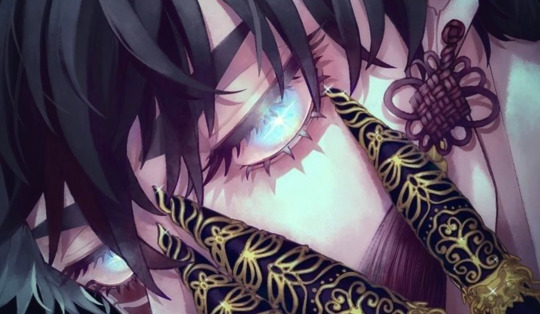

Crowds cheered for Buddha’s victory against Zerofuku. You stood there watching the whole
entire thing your white but tainted wings flapping ever so slightly as you squint your eyes not reacting much to the battle. You were tired.
Tired from what exactly?
Nothing. Tired of doing nothing. Tired of not feeling anything. You’ve tried everything. To biting your nails to cutting your skin to deep red lines. Pain is a feeling right? So why don’t you feel it when you inflict it upon yourself? Why don’t you?
Happiness, sadness, nervousness, or even being surprised did not exist in your vocabulary. You don’t remember when or why such a curse was brought upon you. You're an angel. But can an angel truly be an angel if they can’t feel?
The crowds eventually died down, everyone exiting the arena as you decided you should also leave. Though that was quickly stopped by the War God Ares’s yelling. As well as Herme’s voice.
“Human?! Do you even realize where you are sitting right now?!” Ares yelled with anger evident in his voice and facial expressions. “That is Hades' seat! The King of the underworld!”
The human sitting on the seat had a blindfold wrapped around his eyes and a fancy red print was going down his cheek from what seemed like his eye bag area. Beautiful and expensive clothes. As well as fingernail guards. Fancy indeed. All of a sudden his mouth parted.
“I am a king! So I deserve to sit in a seat where kings sit!” He said with a huge ass smile making Ares flinch back.
“Well, isn't he confident?” Hermes said, seeming amused from this whole situation. “Oh hello broken angel.” Hermes had caught you looking. Of course he did with that amazing perception. It's always the butlers.
“Hi.” You muttered out unaware of the way you were supposed to react to this whole thing so you began fiddling with your sleeves.
“Broken angel! You must agree that no human should sit on Hades' throne, correct?!” Ares yelled.
“Uh. Well. Yeah. But it’s just a throne. I mean.” You said unsure averting your eyes.
“Hmph!” Ares replied and the man sitting down in the throne smirked.
“Well? Aren’t you gonna serve your king some drinks?” Ares genuinely popped a vein at this statement and brought his arm up directing to aim a punch right into the human’s face.
BANG!
Ares fell to the ground. The human had easily overpowered him.
This would be surprising if you had emotions.
Hermes on the other hand actually served him drinks while Ares hid behind him and you stood there watching the scene.

“You!” The man spoke looking at you.
“Yes.?” You say tilting your head.
“Follow me!” He says jolting up and dashing out not even giving you a fucking warning. You follow and reach one of the many halls in Valhalla.
“Why did you bring me here? Mr? Sorry. What’s your name?”
“I am the Emperor Qin Shi Huang! The Emperor of the Qin Dynasty. Remember that!” He says pointing at you with his nail guards. “I have brought you here because. I have not seen you show a smile or crack at any so-called expression. Why is that? You should be smiling like me! Positivity is an amazing thing.” He smiled as he said that.
Of course. Someone had to ask.
“I’m emotionless. If you heard earlier. Mr. Hermes and Lord Ares call me, broken angel.
The man's face had dropped out of the smile for the first time. Unclear to read his genuine expression because his eyes were blindfolded.
“Emotionless?” He says, seeming to confirm what you said before.
“Yes.”
“That was not the answer I expected most.” He said, his voice wavering slightly.
“Well now you know. If that’s all you need I’ll be leaving.” You turned on your foot, eyes narrowing from the whole situation. He could’ve just asked in front of the others then wasting all this time.
“Wait. Be my support!” He yelled out, making you stop in your tracks. Support? What did he mean by that?
“What do you mean?” You asked.
“It’s only necessary for an Emperor to have support, no? But the real reason is that I believe you will earn emotions from helping me!” He says smirking. The hell was this guy talking about? Though. Your so-called curiosity may have peaked. Yes. Plus you had nothing better to do so may as well do what is asked of you.
“Alright.” You nod looking directly into his eyes. “I’ll be your support. I'm assuming during the fight I should cheer for some sort?”
“Yes! Exactly. Show how much you can dedicate yourself to something!” He raises his hand into a fist bump indicating you give one back. You do so, making a clicking noise from the nail guards on Qin Shi Huang. “See you in the audience during my fight.” He says with a smile walking away.
Will you really get emotions?

DISCONTINUED....
#record of ragnarok#qin shi huang#emperor of china#qin dynasty#gender neutral mc#x reader#cute#fluff#romance#gender neutral y/n#kisses#mwah <3#mwah#mwah mwah#shuumatsu no walkure#shuumatsu no valkyrie#emotions#i love you#i love him#self h@rm#tw blo0d#depressing shit#tw depressing thoughts#tw cussing#tw swearing#eventual romance#part 1/2
24 notes
·
View notes
Text
[Hanfu · 漢服]Chinese Song Dynasty(960–1279 AD)Emperor Traditional Ceremonies Clothing Hanfu in Cdrama <清平乐/Serenade of Peaceful Joy>

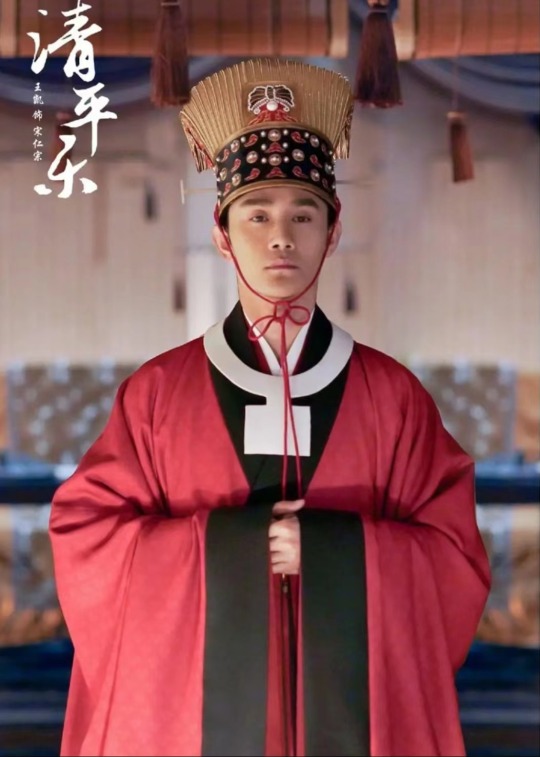
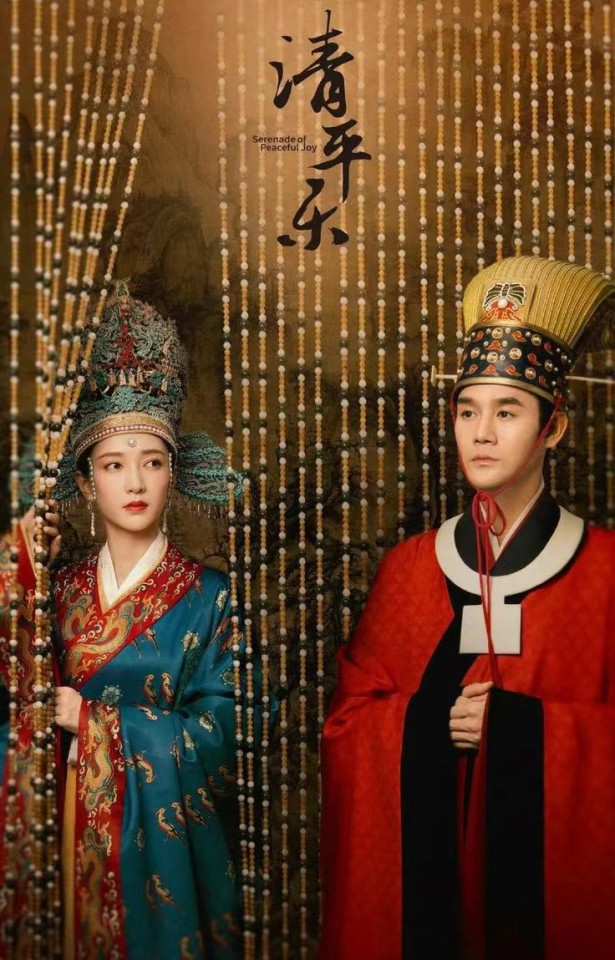
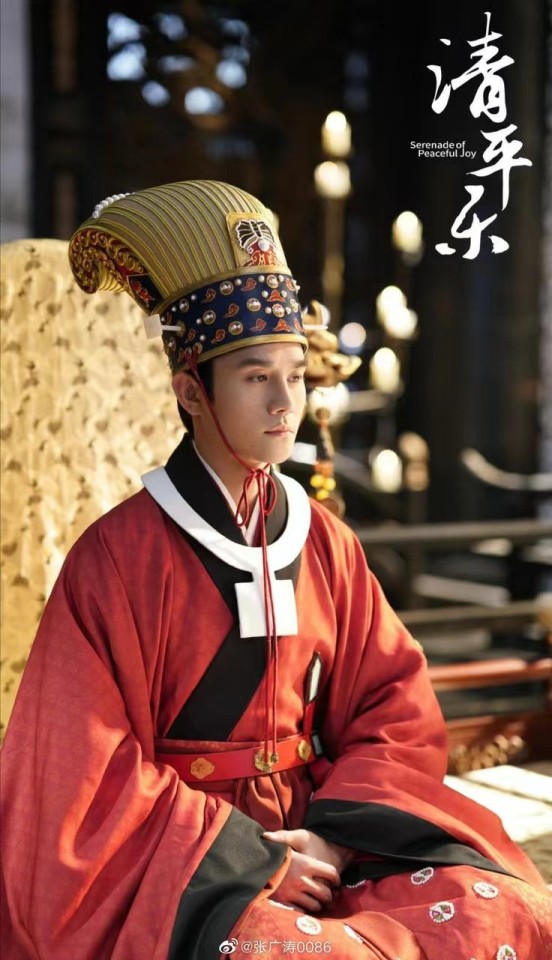
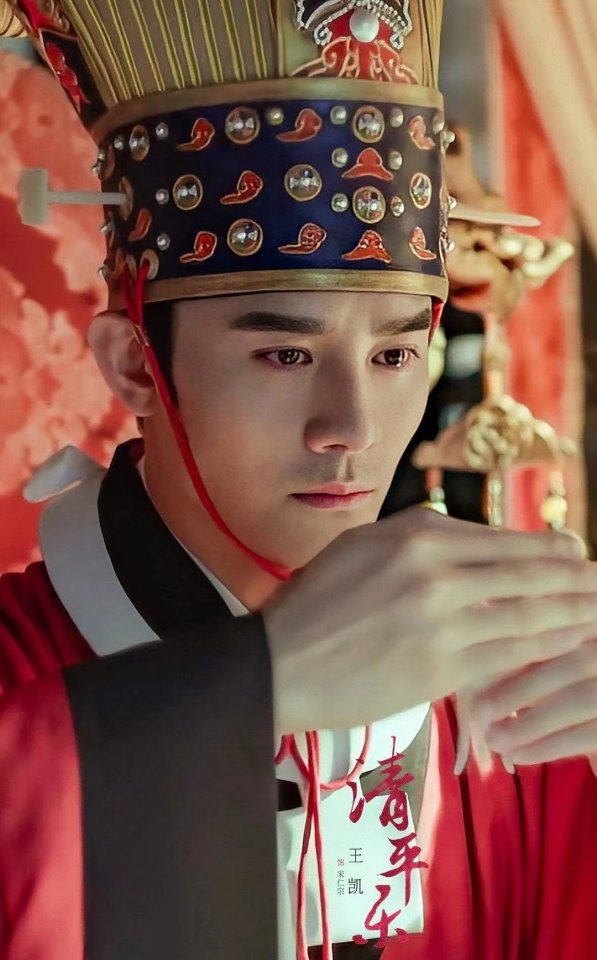
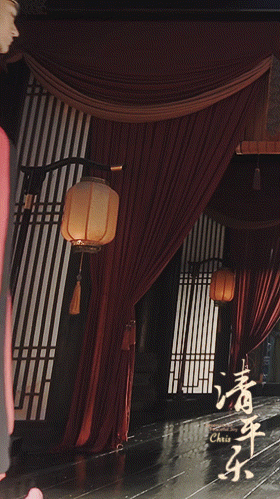
【Historical Reference Artifacts】:
Posthumous Portrait of Emperor Zhaowu of Song Dynasty wearing TongTianGuanFu(通天冠服).
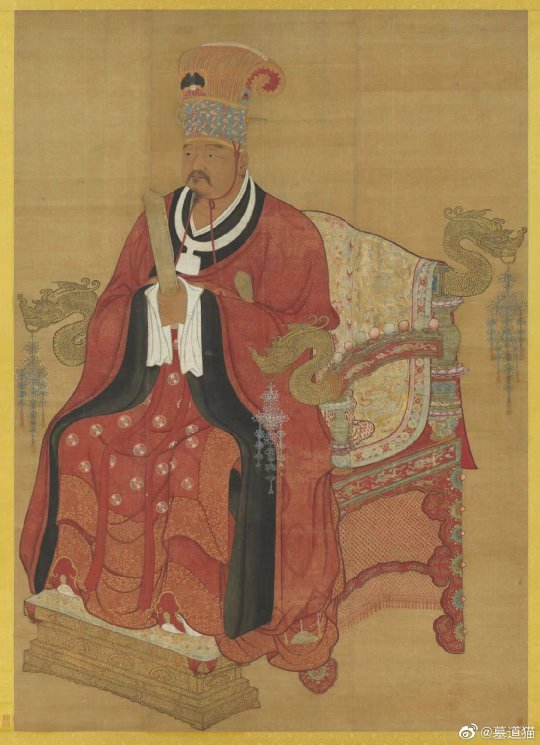
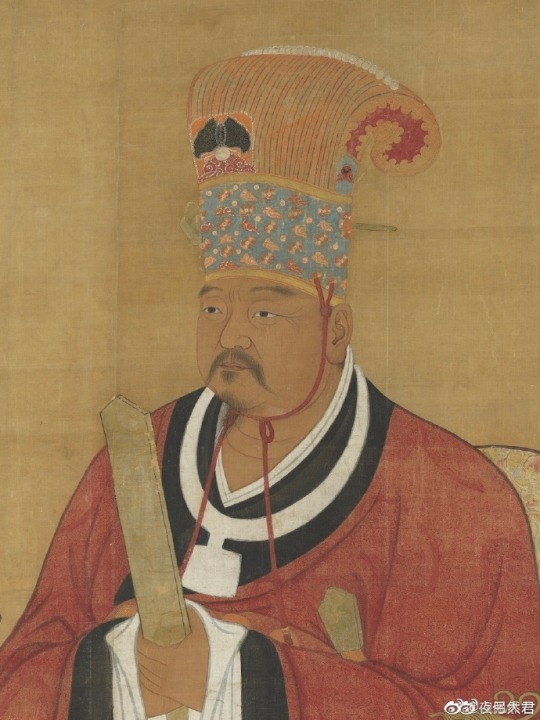
Palace Portrait of Emperor Shenzong of Song Dynasty wearing TongTianGuanFu(通天冠服).
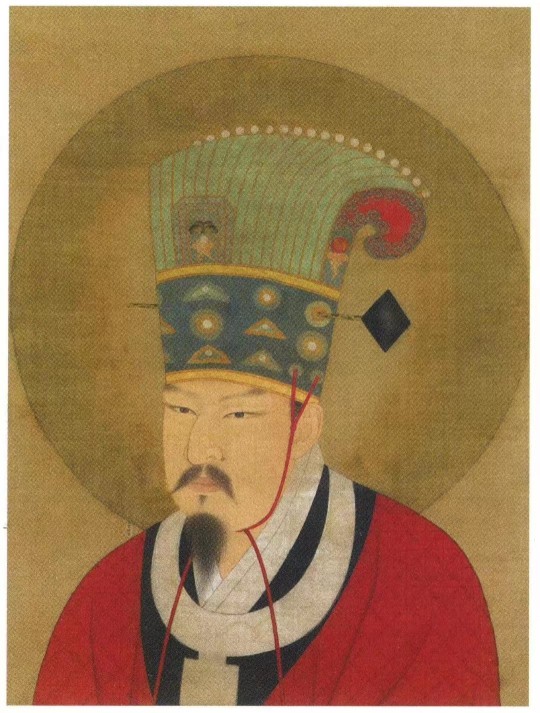
The emperor wearing wearing TongTianGuanFu(通天冠服) in the Song Dynasty painting "Book of a girl's filial piety/女孝经图"
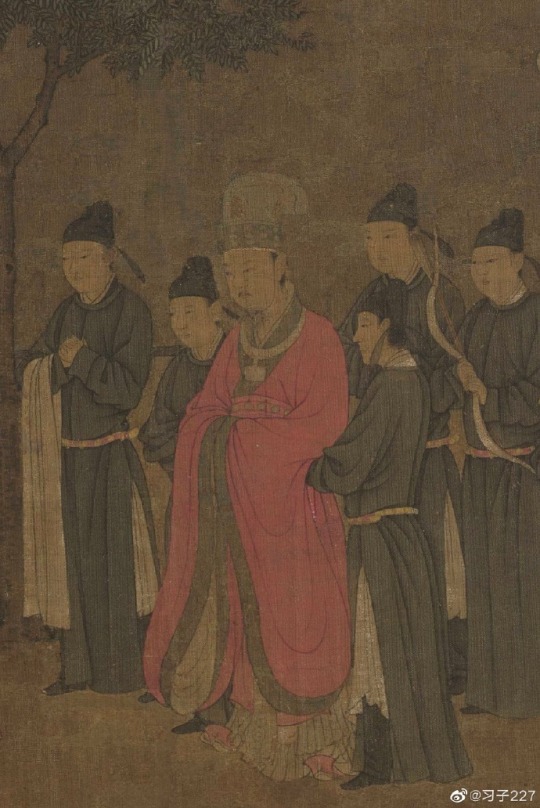
【History Note About Tongtianguanfu (Chinese: 通天冠服)】
Tongtianguanfu (Chinese: 通天冠服) is a form of court attire in hanfu which was worn by the Emperor during the Song dynasty on very important occasions, such as grand court sessions and during major title-granting ceremonies. The attire traces its origin from the Han Dynasty. It was also worn in the Jin dynasty Emperors when the apparel system of the Song dynasty was imitated and formed their own carriages and apparel system,and in the Ming dynasty. The tongtianguanfu was composed of a red outer robe, a white inner robe, a bixi, and a guan called tongtianguan(tongtian crown), and a neck accessory called fangxin quling.
Among the Tongtianguanfu (Chinese: 通天冠服), the "Tongtian crown" which wear by emperor has a long history, and has been recorded as early as the Han Dynasty(202 BC –220 AD) in "Book of the Later Han·Yufu Zhixia/后汉书·舆服志下":
“通天冠,高九寸,正竖,顶少邪(斜)却,乃直下为铁卷梁,前有山、展筒、为述,乘舆所常服。”
In the Han Dynasty, when all the officials paid their congratulations on the Zhēngyuè/正月 (the first month of the year in the Chinese calendar), the emperor would wear the "Tongtian crown". According to the Tongtian Crown, it existed in all dynasties from the Qin to the Ming Dynasty (except the Yuan Dynasty), and was abolished in the Qing Dynasty.
And the Tongtianguanfu (Chinese: 通天冠服) of the Han Chinese dynasties in China have gone through a certain amount of evolution.
For reference:
Han Dynasty(202 BC –220 AD) Tongtian crown/通天冠
The earliest form of Tongtian crown that can be seen so far comes from the Han Dynasty stone carvings.
The Tongtian Crown of this period has a similar structure to the Jinxian Crown(进贤冠) of the ministers.

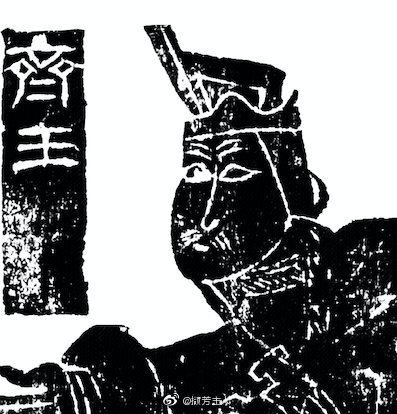
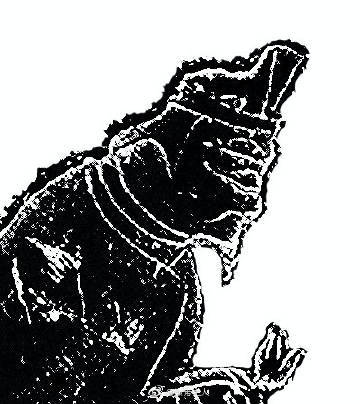
Wei and Jin Dynasties-Southern and Northern Dynasties Tongtian crown/通天冠
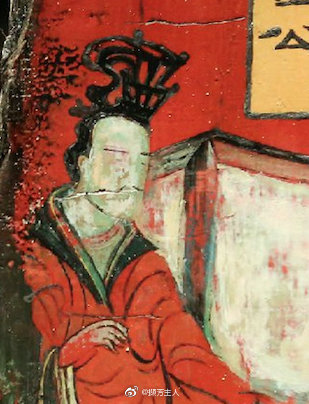
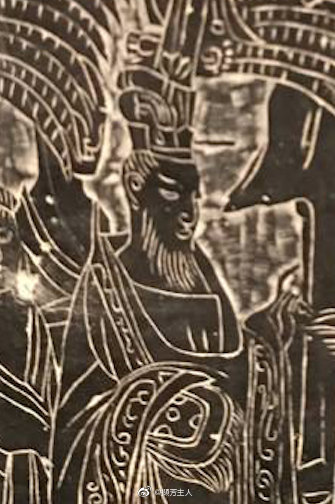
Tang dynasty (618–907) Tongtian crown/通天冠
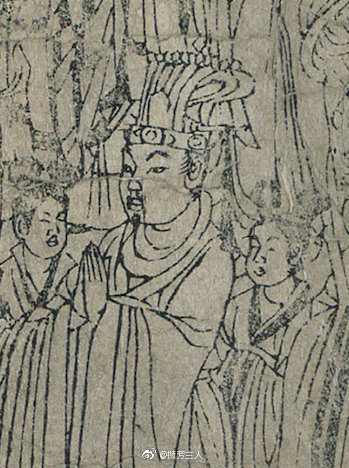
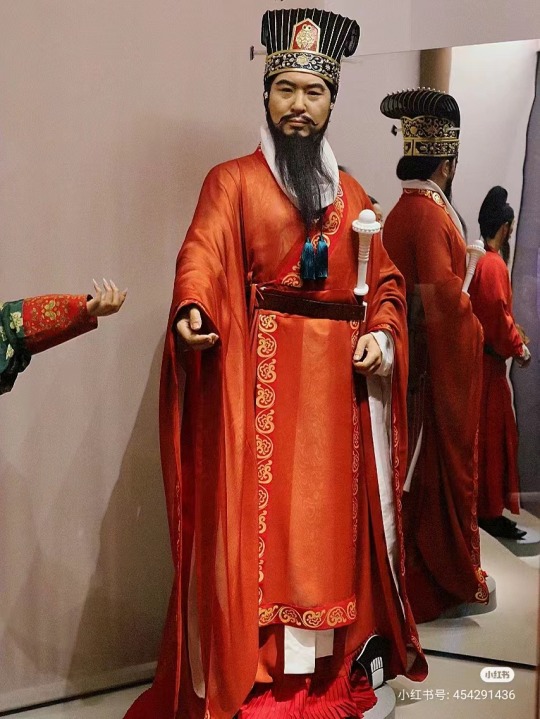

Ming dynasty (1368-1644) Tongtian crown/通天冠
The Tongtian crown of the Ming Dynasty was briefly used in the early years of Hongwu(the early ming dynasty), but was soon completely replaced by Pi Bian(皮弁), and its appearance was much lower-key than that of the Song Dynasty
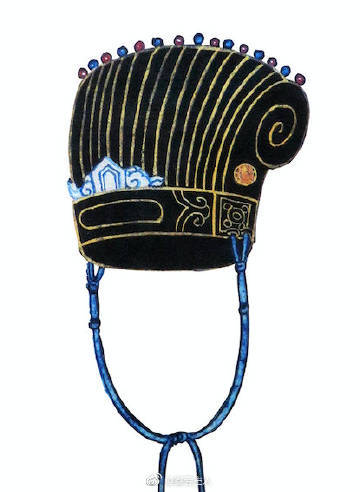
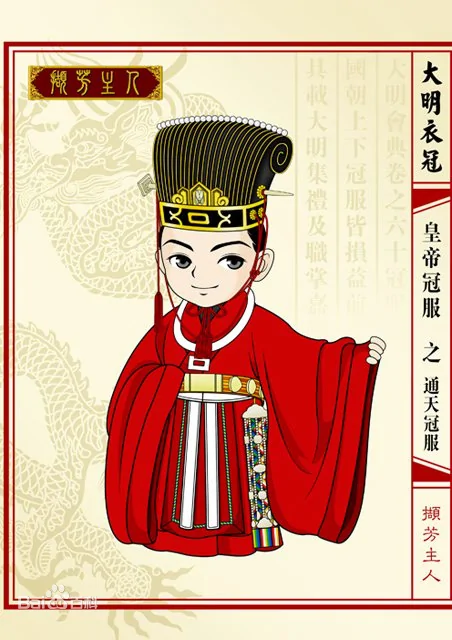
after replace by Pi Bian crown(皮弁):
This Pi Bian crown belonged to King Luhuang of the Ming Dynasty, so it only has 9 colorful beads, while the emperor's Pi Bian crown has 12 colorful beads on it.
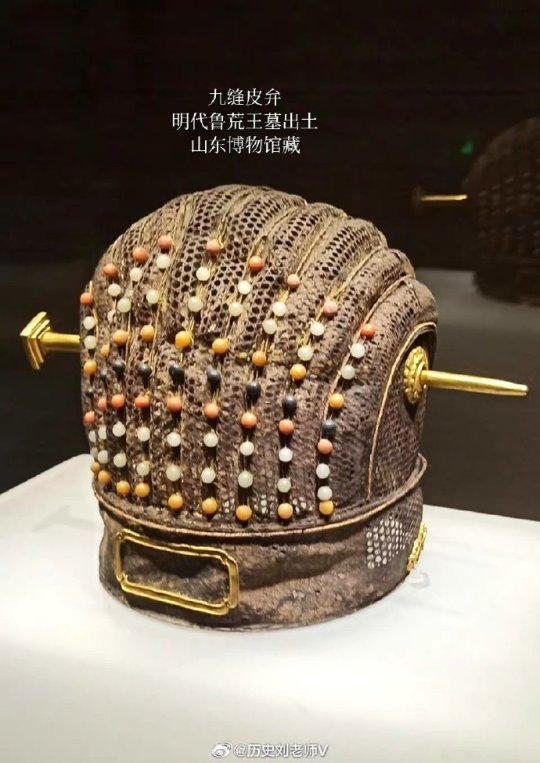
※The Yuan Dynasty established by the Mongols and the Qing Dynasty established by the Manchus did not use this kind of crown and clothing※
#chinese hanfu#Song Dynasty(960–1279 AD)#hanfu#chinese traditional clothing#Ceremonies Clothing#Tongtianguanfu (Chinese: 通天冠服)#hanfu accessories#hanfu history#chinese#china#hanfu_challenge#historical fashion#Serenade of Peaceful Joy#清平乐#漢服#汉服#中華風#Emperor#crown#hanfu man
140 notes
·
View notes
Text
Hot take but if i was the first emperor of china going though my midlife crisis and desperate to make a vainglorious display of power to stave off the terrible inevitability of death, i would simply commission more statues of my servants and officials, artesians and concubines in excruciating detail so two thousand years in the future, random tumblr artists would not have to frantically trawl the internet at 2am, searching variations of “eunuch hat qin/han dynasty“ in english AND chinese. Hope youre having fun in the afterlife with your 8000 himbos and no one to do your laundry or paperwork, idiot.
#while your at it pls make me a 360 degree panorama of normal citizens going about their daily lives. pls qin shi huang i need references#i would also not fill my tomb with volatile heavy metals so people can crack that bad boy open and see whats inside#rip to the first emperor but im different#wips
55 notes
·
View notes